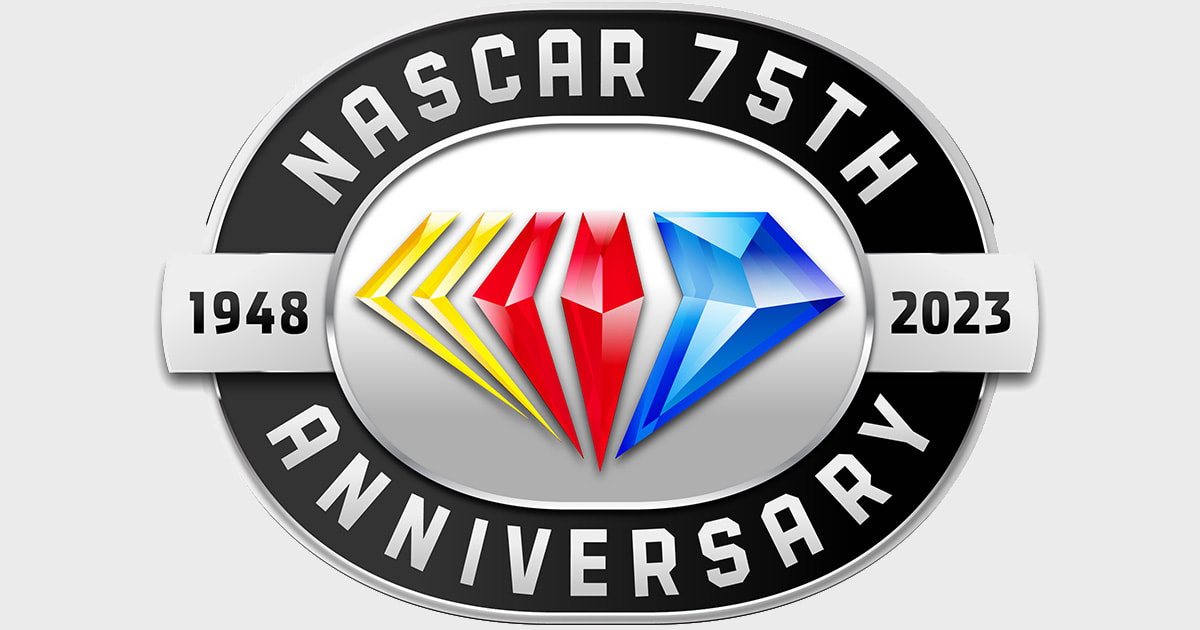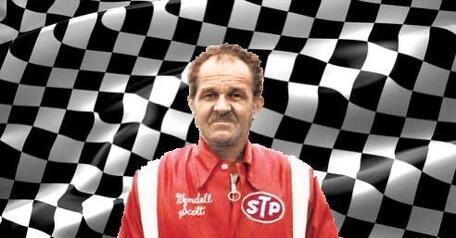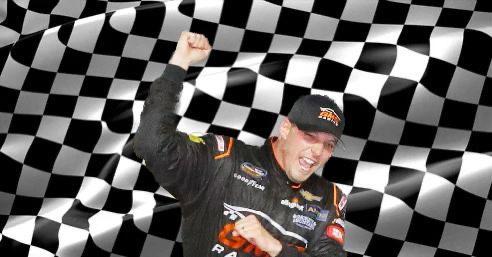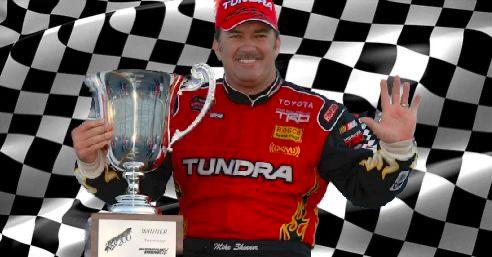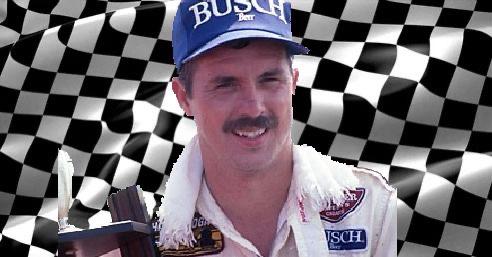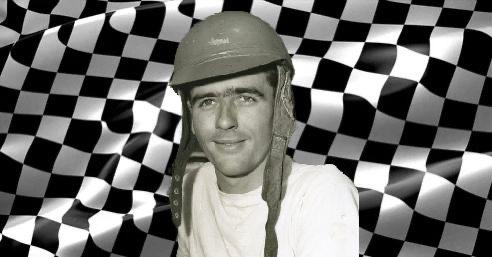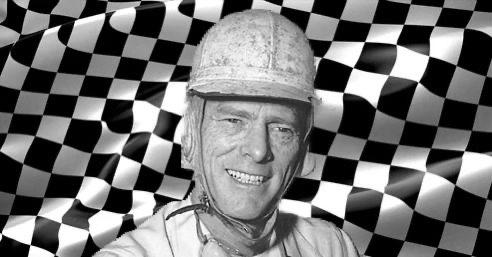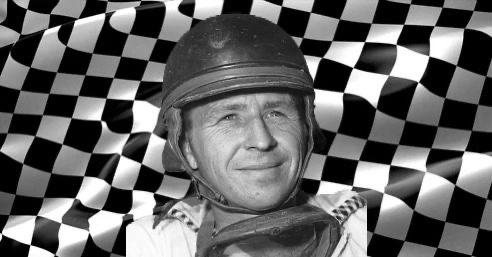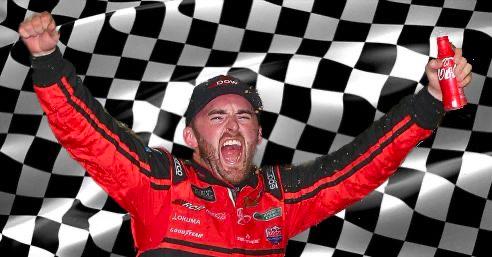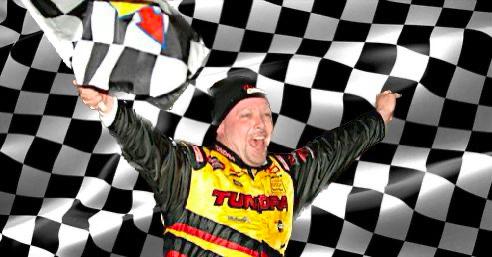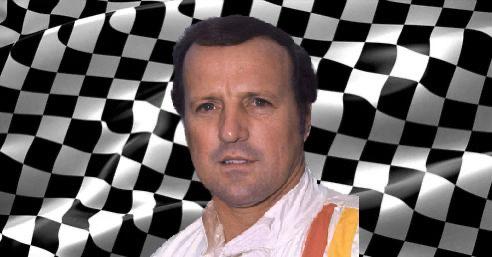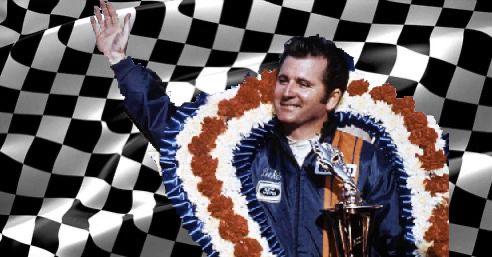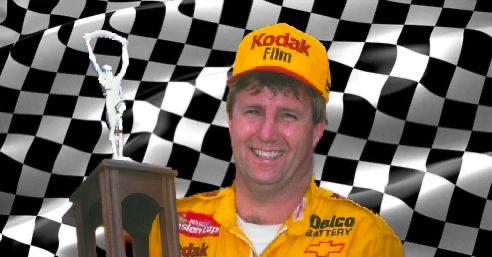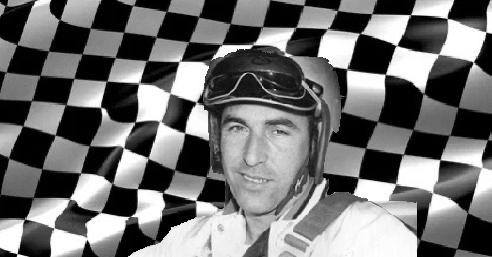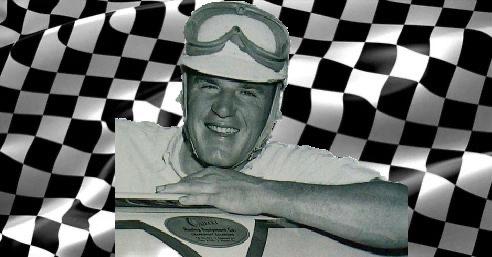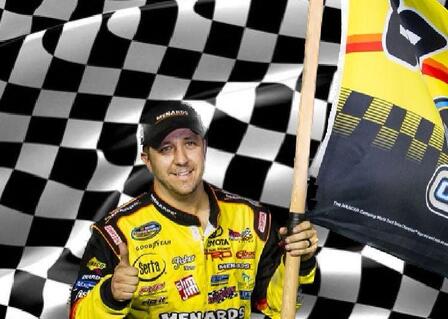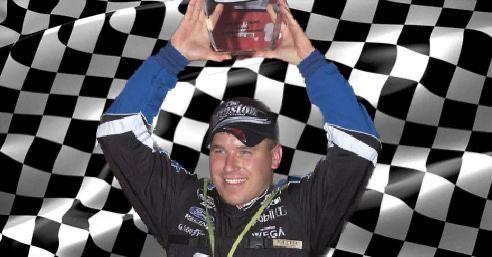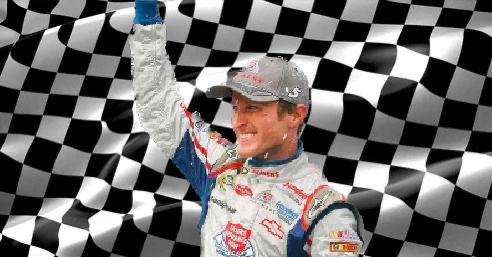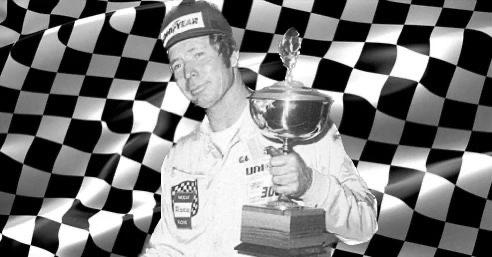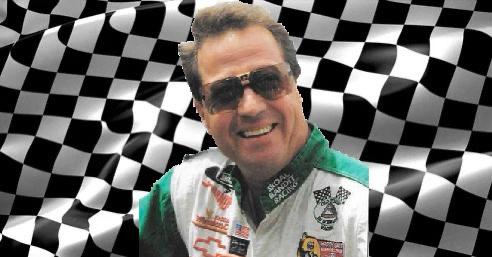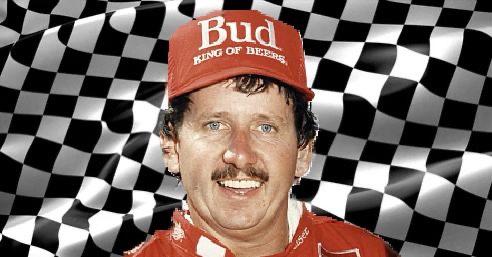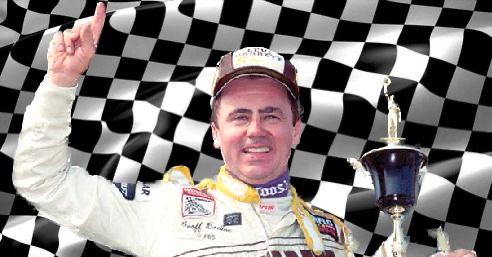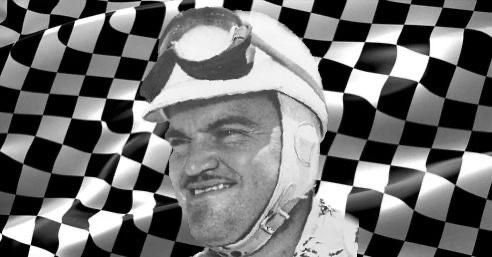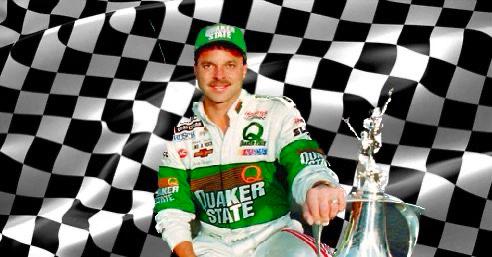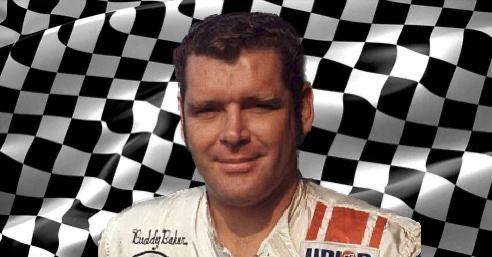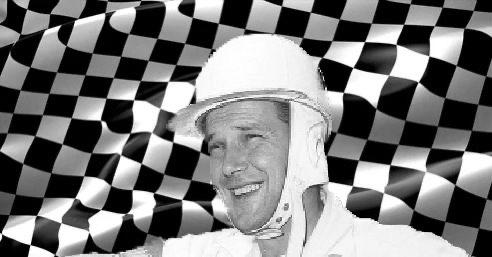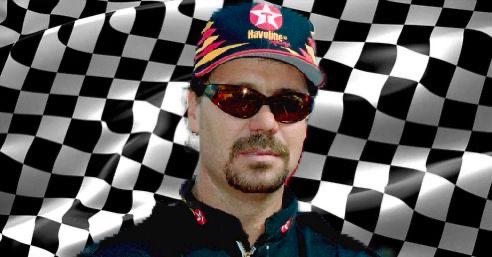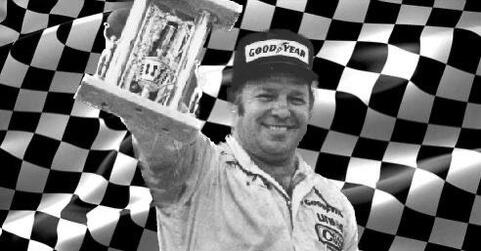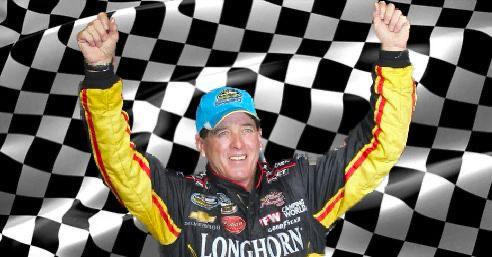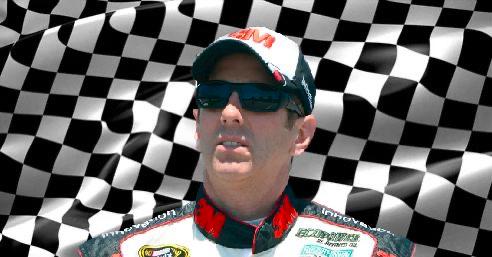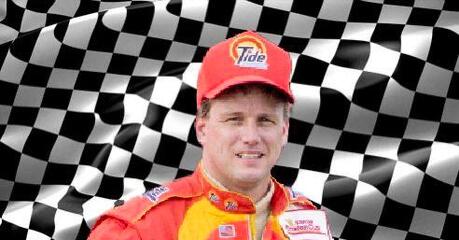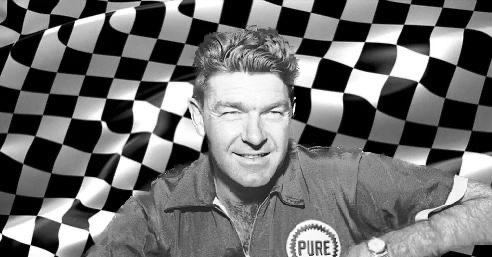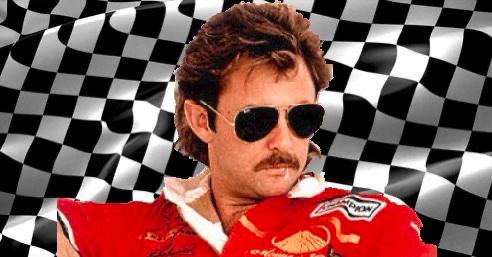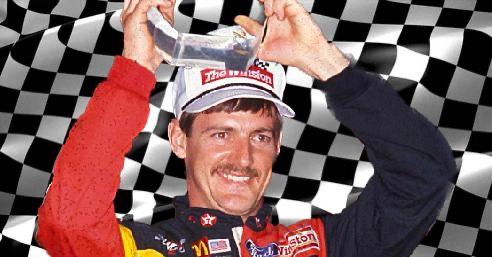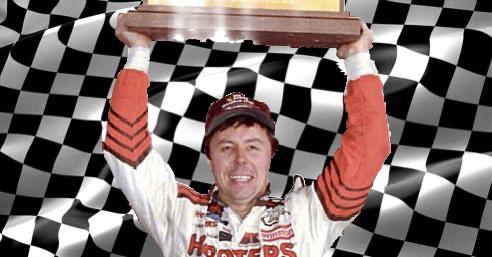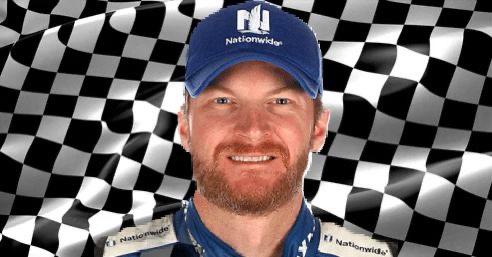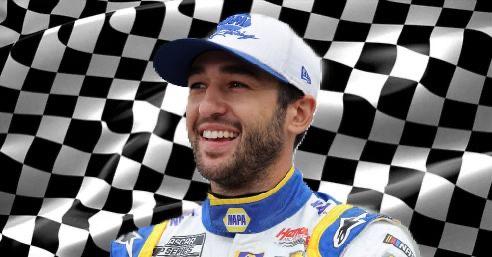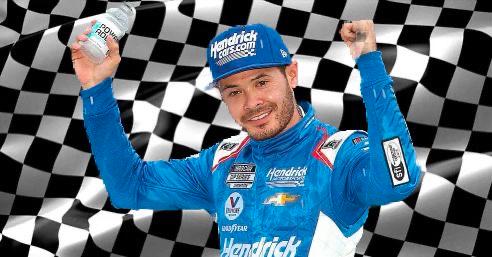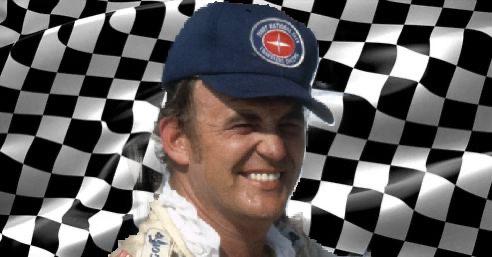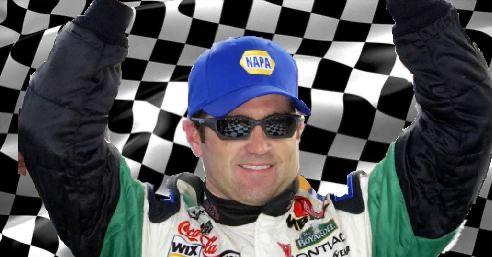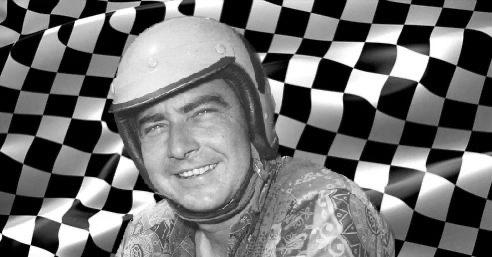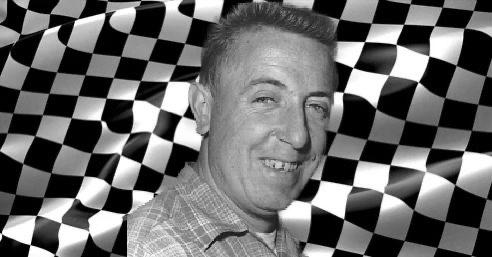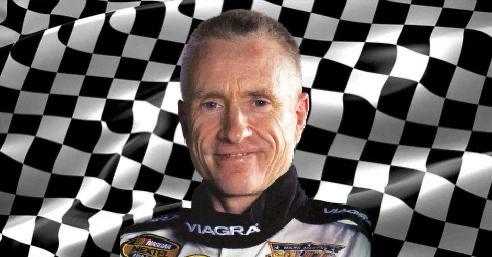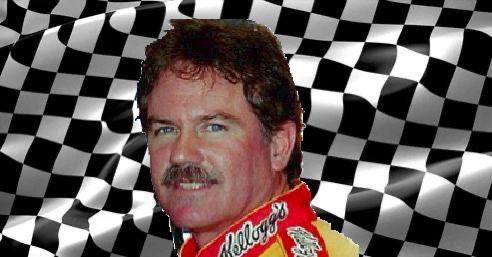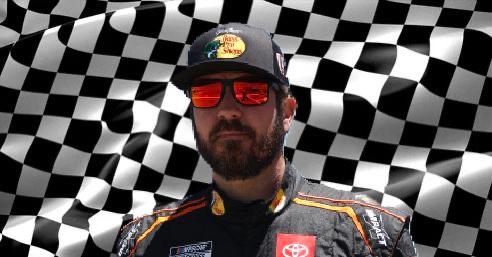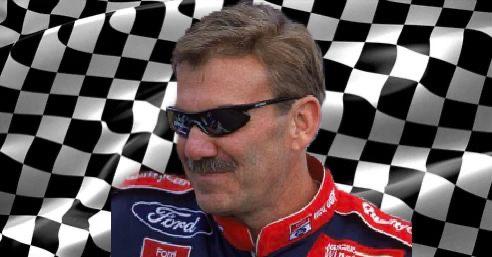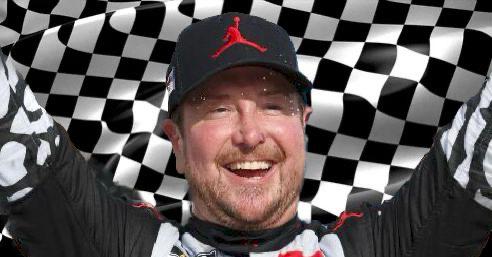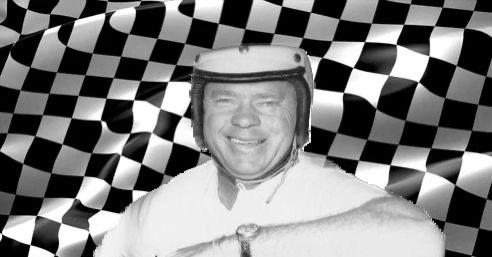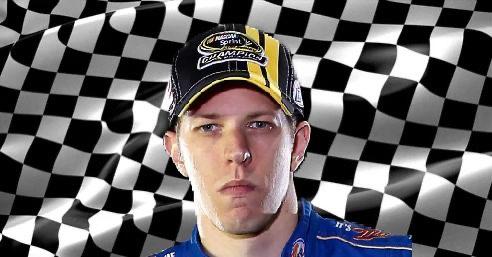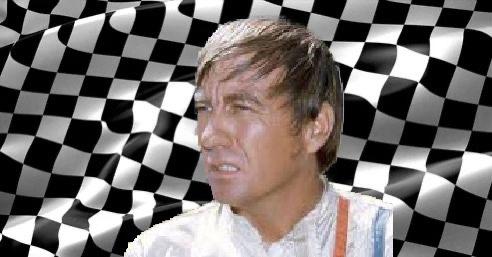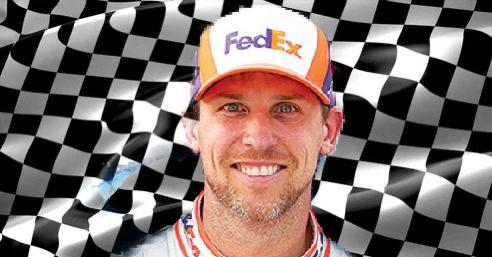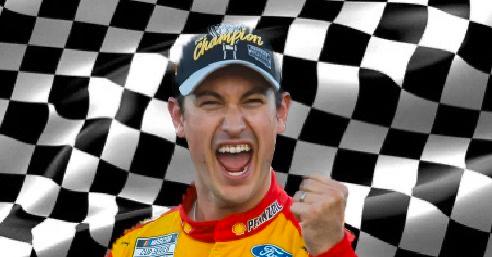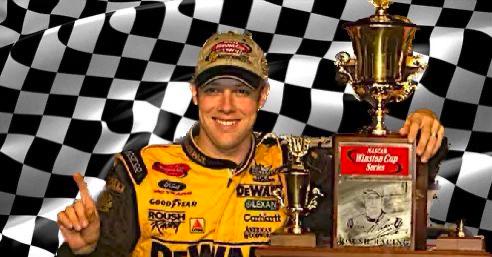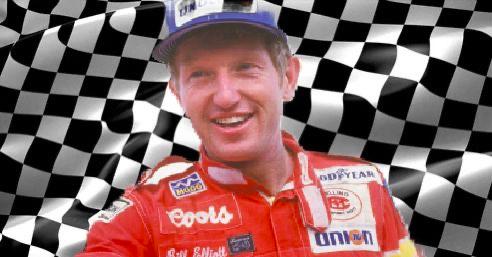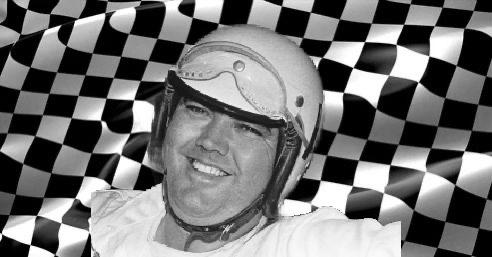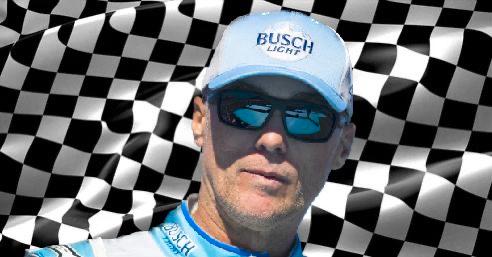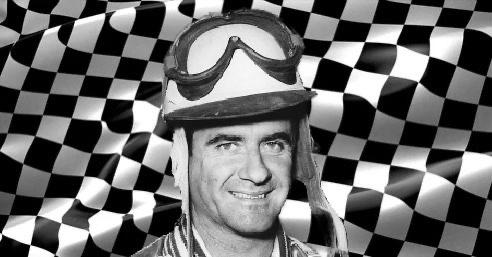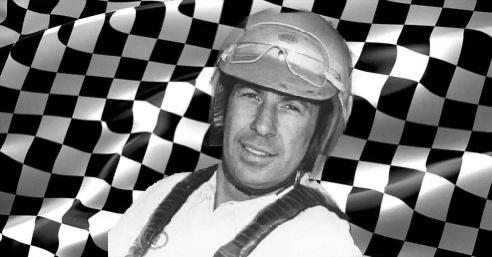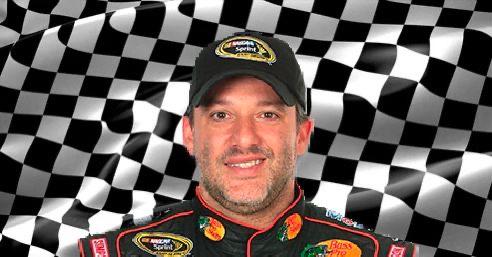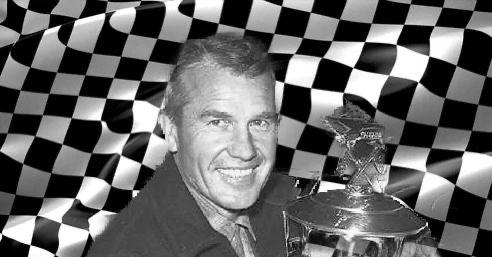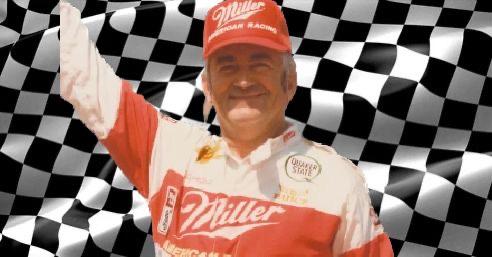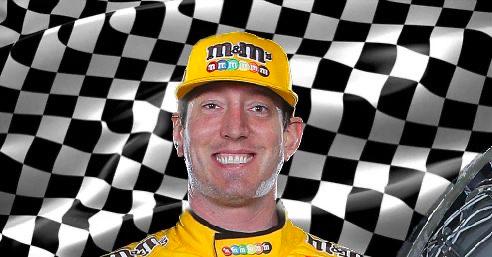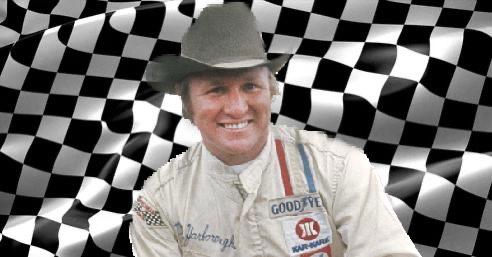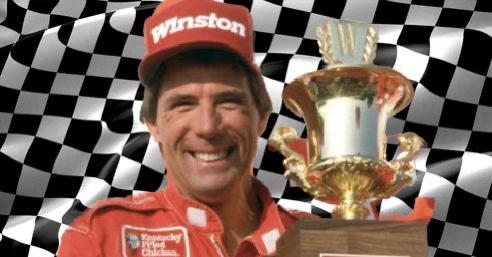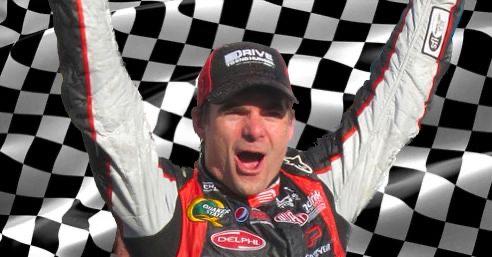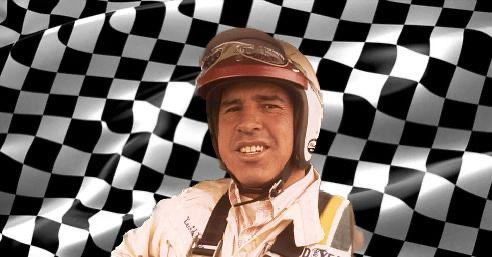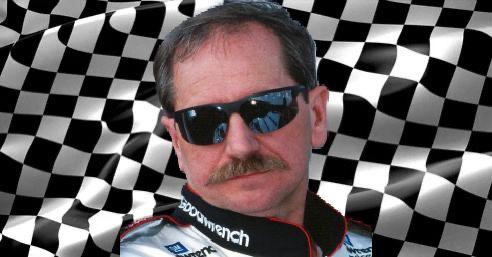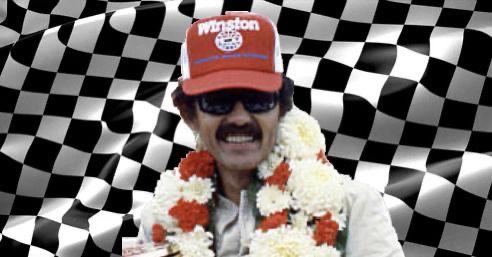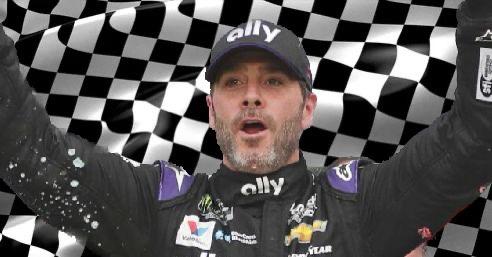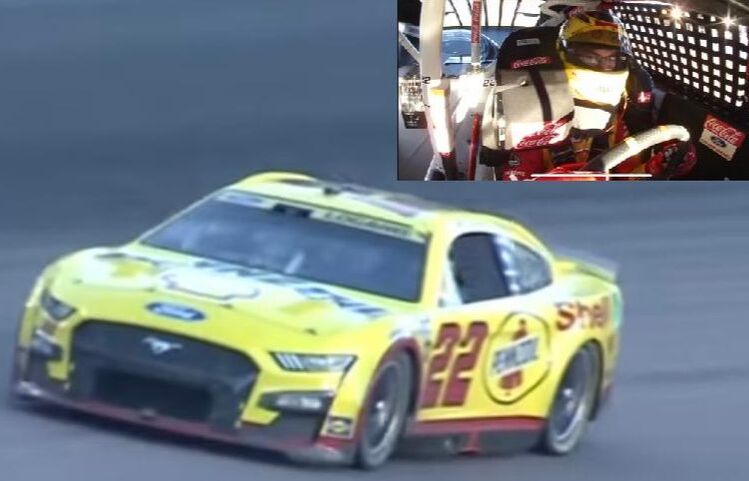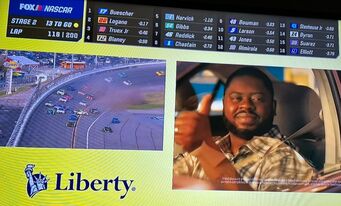 Screenshot Screenshot by Julian Spivey Every year during the broadcast of the Daytona 500, which has been broadcast by Fox every year since 2007 and three of the six years before that, you could probably see the same joke on social media feeds (and made among friends before that). “Daytona 500 Commercials – am I right?” It’s a joke made because commercial breaks are a major nuisance to fans watching NASCAR from home because, unless they are during a caution break, you are missing the action. Auto racing, which NASCAR is the most popular form of in America, is the only sport truly affected by commercials when it comes to missing the action. Baseball, football, basketball, hockey, soccer, tennis, etc. all have either natural breaks that allow for commercials or what’s known as TV timeouts to accommodate commercials. Professional golf will continue through commercials, but networks have gotten so good about pre-taping shots and effortlessly cutting them into the live broadcast that it’s not problematic. In NASCAR – and other forms of racing like IndyCar – commercial breaks are often problematic, especially when they’re being shown on average every nine laps during a sport’s biggest event as was the case during the Daytona 500 on Fox on Sunday, February 19. And that average was actually aided by the network airing the majority of the final 20 percent of the race commercial-free. During the race and after the race on Sunday the actual event and Ricky Stenhouse Jr. winning the race seemed to play second fiddle to complaining about the number of commercial breaks and action missed by fans as a result. Many of the complaints I saw were via Twitter, which is certainly a medium where you’re prone to see much complaining, but that doesn’t mean the complaints or wrong or unwarranted. It’s a sport and a broadcaster of that sport’s number one priority to please its fan base. According to the Twitter user @GPLapsJake, the 2023 Daytona 500 featured 23 commercials breaks, accounting for 78 total laps (of the 200-lap race) missed with 58 of those being green flag laps (while racing at speed or actual action was taking place). This means 29 percent of the green flag racing during the sport’s biggest event was either completely missed by fans or shown on a side-by-side small screen with commercials beside it. @GPLapsJake compared these numbers to past races broadcast by Fox and found that the numbers were nearly the same throughout the network’s run with the race – but he did admit “somehow feels so much worse now.” It certainly does feel much worse now and there are many reasons for this, I believe, and I’ll get into some of the reasons why I believe this to be the case. A) Attention spans are getting shorter. This point doesn’t interest me a whole lot but it’s true. According to a CNN article, Dr. Gloria Mark, professor of informatics at the University of California – Irvine, has studied how digital media impacts our lives. Mark found that in 2004 the average attention span on a screen was 2 ½ minutes. Years later, they found it had slipped to about 75 seconds. Now she finds the average to be 47 seconds. B) We don’t view television the same way we did two decades ago. In 2001, the first Daytona 500 broadcast on Fox, we had just one option. We had to watch the race live (or record it on a VHS!) and we had to take it the way the network gave it to us. So, if we missed 35.50 percent of the race, as @GPLapsJake figured up, that year we knew no better. That was the way TV worked and it had always been that way. But it wouldn’t be too long before innovations came around in DVRs that allowed us to realize we didn’t have to put up with the annoyance of commercials anymore. In 2001, commercials were just a way of life. In 2023, they’re seen as something that can and should be avoided. I’ve been so annoyed by commercials during NASCAR events (and at times boring competition on the track – which was aided a lot in 2022 by the new Next Gen Racecar) that I began DVRing races a few years ago and waiting 90 minutes to two hours before starting so I could fast-forward through these nuisances. I understand, though, many fans don’t want to watch races this way. C) We’ve seen it doesn’t have to be this way. There has been a much talked about boom over the last few years about the rising popularity of Formula 1 among American audiences, despite the fact that most of the events in that series are held in countries across the globe with time zones that see many races held in the wee hours of the morning or rarely in what are accustomed normal sporting event viewing times in America. ESPN, the broadcaster of F1 races in America but uses the Britain-based Sky Sports feed for coverage, airs all of the F1 races commercial-free. Sure, F1 races are generally about half of the broadcast time of a NASCAR race, which honestly probably has also aided in its boom among American audiences, but we’ve seen it can still be done. People within the sport swear NASCAR can’t be broadcast in the same way due to broadcasting expenses. Fox NASCAR play-by-play commentator Mike Joy told a fan on Twitter: “It’s a fraction of the cost of televising NASCAR Cup on Fox, NBC, FS1 and USA” when asked about ESPN’s F1 coverage, though he didn’t explain the reasons why. But all fans truly see here is that it’s being done elsewhere, and it should be done for NASCAR – and in 2023 fans should have the right to see more than just 71% of the event’s action. Even if NASCAR broadcasters could utilize the side-by-side method more often or better yet completely it would be bucket loads better than currently. D) It doesn’t help that the broadcasters don’t seem to care. One of the worst things you can do if you’re a sport or the broadcaster of the sport is to make the fans, upset already, feel like they’re wrong for being upset or like they don’t have the right to be upset. And I saw this time and time again from NASCAR on Fox commentators and others affiliated with the sport like former Texas Motor Speedway President Eddie Gossage and Cup Series spotter Freddie Kraft on Twitter on Monday, the day after the race. The easiest way to lose a fan is to act like their complaints don’t matter, but it feels like NASCAR on Fox commentators have taken the overall Rupert Murdoch/Fox News policy of gaslight, gaslight, gaslight when it comes to the wave of complaints about the broadcast on Sunday – and there were more complaints about the broadcast besides the commercials, but that was the biggest irritant for sure. All sports are trying to figure out how to fit into the modern world. This has led to numerous changes from minor to major in a multitude of sports, for instance, baseball is trying to speed the game up in hopes of appealing to more and younger viewers. NASCAR’s current TV deal ends after the 2024 season and the sport desperately needs to figure out ways to appeal to modern TV audiences and younger audiences, as well. Beaucoups of commercials are not going to be the way to make this happen. Fox Sports’ coverage of the sport, in general, is not a great way to make it happen either – but that’s perhaps a story for another time.
0 Comments
by Julian Spivey NASCAR is celebrating its 75th anniversary this season. So, I felt there was no better time than now on the day of the 2023 Daytona to unveil my list of the 75 greatest NASCAR drivers of all time. I’ve decided to include drivers from all three NASCAR series: Cup Series, Xfinity Series and Craftsman Truck Series on the list. 75. Wendell Scott Wendell Scott was the first African American driver to win a NASCAR Cup Series race when he did so at Speedway Park in Jacksonville, Fla. on December 1, 1963. He would be the only African American driver to win in the Cup Series until Darrell “Bubba” Wallace Jr. did so at Talladega Superspeedway in 2021 (and subsequently Kansas Speedway in 2022). Scott’s win did come with some unfortunate controversy at the time as NASCAR was scared to award him the victory at the time being in the segregated South. The sport originally named Buck Baker, who finished second, as the race winner. The sport realized Scott had won the race within hours of the finish but didn’t award him until two years later making one of the sport’s all-time greatest moments one of its most cowardice and unfortunate, as well. Scott dealt with prejudice his entire career but persevered finishing better in lesser equipment than many drivers with bigger teams. He had 147 top-10 finishes in 495 career races, including a sixth-place points finish in 1966. There’s no telling how much success he might have had in NASCAR has all things been equal. He died in 1990 of cancer at age 69. He was inducted into the NASCAR Hall of Fame in 2015. 74. Johnny Sauter Johnny Sauter is proof that sometimes a driver can find a home in one of the lower-tier NASCAR series without much success in Cup. Sauter never really got much of a chance in the Cup Series, unfortunately, only competing in one full-time season in that series in 2007 after winning three Xfinity Series races from 2002-2006. In 2009, Sauter moved to the Craftsman Truck Series full-time and would become one of that series’ most exciting and winning drivers over the next decade, including winning the 2016 championship and being runner-up twice more. Sauter’s 24 truck series wins are fifth most all-time. 73. Mike Skinner Mike Skinner was the inaugural champion of the NASCAR Craftsman Truck Series when that series began in 1995. His 28 career wins in the truck series are tied with Jack Sprague for the third most ever behind Kyle Busch and Ron Hornaday. Skinner also won one Xfinity Series race in his career (1999 at Atlanta Motor Speedway and was the 1997 NASCAR Cup Series Rookie of the Year. 72. Larry Pearson Larry Pearson is a second-generation NASCAR driver and while he never had the successful Cup Series career that his Hall of Famer father, David, did he was a two-time champion in the sport’s feeder series, the Xfinity Series, winning the title back-to-back in 1986 and 1987. Pearson is one of just nine drivers to ever win multiple Xfinity Series championships (nobody has ever won more than two). Pearson won 15 races in the Xfinity Series between 1984-1996, but only competed in one full-time Cup Series season in 1989. 71. Bill Rexford Bill Rexford holds the distinction of being the only NASCAR Cup Series champion in the sport’s 75-year history to only win one race in his career. He was the sport’s second champion in 1950, winning the title at just 23 years old. To this date, he’s still the youngest Cup Series champion in the sport’s history. Rexford’s career only lasted a total of 36 races spread over five years with his championship-winning season, in which he had five top-5s and 11 top-10s, being the only full-time run of his career. He’s the only eligible champion in NASCAR history not enshrined in the sport’s Hall of Fame. 70. Red Byron Red Byron was an American hero before he ever took the green flag in a NASCAR race. Byron was a United States Army Air Forces flight engineer on B-24 bombers during World War II where he suffered a serious left leg injury that would require him to need a special setup during his racing career. Byron is notable for being the very first NASCAR winner in the 1949 inaugural season, winning the opening Daytona Beach road course race. Byron would win a series high two races that season on the way to being the sport’s first champion. He would only compete in 15 NASCAR races in his career. He was inducted into the NASCAR Hall of Fame in 2018, 58 years after his death from a heart attack at the age of 45. 69. Cotton Owens Everett “Cotton” Owens may be known more these days as a mechanic and owner, especially the car owner of David Pearson’s championship run in 1966, but he was also one of the sport’s greatest drivers early on in its history. Owens won nine times on the Cup Series circuit, including at least once every season for five straight years from 1957-1961. Owens died at 88 in 2012 just a few weeks after it was announced he would be a member of the 2013 NASCAR Hall of Fame class. 68. Austin Dillon Austin Dillon is one of just three drivers in NASCAR history to win both a Craftsman Truck Series and Xfinity Series championship (Xfinity Series debuted in 1982 and Truck Series in 1995). His truck championship came in 2011 and his Xfinity title in 2013. Dillon has been a full-time Cup Series driver since 2014 winning four races, including the Daytona 500 in 2018. He’s also won another NASCAR “grand slam” event in the 2017 Coca-Cola 600 at Charlotte Motor Speedway. He has a combined 16 wins in the Xfinity and truck series. 67. Todd Bodine Todd Bodine had a successful NASCAR Xfinity Series career winning seven races in three seasons in the early ‘90s before moving up to the Cup Series where he had two disappointing seasons before moving back to the Xfinity Series. He would win 15 Xfinity Series races from 1991-2003 with a career-high runner-up finish in the point standings in 1997. It’d Bodine’s time in the Craftsman Truck Series from 2005-2012 that puts him on this list. He’s one of the greatest drivers in the history of that series with 22 career wins, sixth most all-time. He’s also one of just four drivers to win multiple championships in the series doing so in 2006 and 2010. 66. A.J. Foyt A.J. Foyt is considered by many to be the greatest auto racer of all time, but NASCAR was never his main focus in motorsports. Foyt never ran more than seven races in any single NASCAR Cup Series season. NASCAR was more of a hobby for Foyt, who focused more on open-wheel cars including a record four Indianapolis 500 victories. He also won the 24 Hours of Le Mans, 24 House of Daytona, the 12 Hours of Sebring and seven USAC championships. He did manage to win seven Cup Series races in his moonlighting in the sport, including the sport’s biggest event the Daytona 500 in 1972 with Wood Brothers Racing. 65. LeeRoy Yarbrough LeeRoy Yarbrough had one helluva 1969 season. It’s pretty much solely the reason he’s on this list. That year Yarbrough won half of his career 14 races in the NASCAR Cup Series that season, including the sport’s three biggest races of the year: Daytona 500, Southern 500 and World 600, making him the first driver to win the sport’s so-called Triple Crown. Yarbrough’s life following racing was tragic – he was admitted to a mental institution in 1980 after trying to murder his mother. He died in 1984 at just 46 years old from head injuries sustained in a fall. 64. Sterling Marlin There are certainly highlights in Sterling Marlin’s NASCAR Cup Series career – he was a back-to-back Daytona 500 winner after all – but it’s the “what if” that stands out most to me about his career. Marlin was in the thick of a points battle (one he had led much of the season) when he wrecked at Kansas Speedway and broke a vertebra in his neck causing him to miss the remainder of the season (it’s important to note he was fourth in points at the time, but it was close). His best points finish of his career would be third in 1995 and 2001. He never won a race following that season. Marlin won 10 Cup Races between 1994 (his first career win was the Daytona 500 that season) and 2002. He also won twice in the Xfinity Series. 63. Dick Hutcherson Dick Hutcherson only ran 103 total NASCAR Cup Series races over four years before retiring to be a businessman, but he was good enough at it that he’s one of the 75 greatest drivers in the sport’s history. Hutcherson won 14 races and had 73 top 10s in those 103 career entries, an amazing percentage for both. He won nine races in his only full-time season of 1965, in which he finished runner-up in the point standings. He would finish third in the point standings in 1967, his final year in the sport, despite missing a whopping 16 events. After his racing career, he would win two titles as David Pearson’s crew chief in 1968 and 1969. Hutcherson died at 73 in 2005. 62. Marvin Panch Marvin Panch won 17 NASCAR Cup Series races from 1956-1966 with a career-high of six wins coming in the 1957 season, in which he was runner-up in the point standings (his only real official full-time season). Panch’s career highlight was winning the third-ever Daytona 500 in 1961 driving for owner Smokey Yunick. Panch died at age 89 in 2015. 61. Matt Crafton Matt Crafton is one of only three drivers to win three or more NASCAR Craftsman Truck Series championships (Ron Hornaday Jr. won four and Jack Sprague won three). Crafton was the back-to-back truck series champ in 2013 and 2014 and won his third in 2019. Crafton’s 15 career truck series wins rank 10th all-time in the series he has called home for his entire 22 (going on 23) year career. 60. Ryan Newman Ryan Newman came upon the NASCAR scene like a rocket in 2002 and developed the nickname “Rocketman,” in part because he had an engineering degree from Purdue University (a rarity among NASCAR drivers for sure) but mostly for his propensity of winning poles for Cup Series races. His 51 career poles (of which 34 came in his first four seasons with Penske Racing) rank ninth all-time in NASCAR history. If only he’d had more luck finishing races he’d likely be much higher on this list. His five wins from the pole are the lowest percentage of any driver in the top 10. Newman won 18 career Cup Series races, including a career-high of eight in 2003, his sophomore year in the series. His career highlights include the 2008 Daytona 500 and the 2013 Brickyard 400 at Indianapolis Motor Speedway. 59. Kasey Kahne Kasey Kahne won 18 NASCAR Cup Series races over his 15-year career in that series. His career high in wins was six in 2006 at age 26 and his career-high finish in the point standings was fourth in 2012. Kahne was a three-time winner of the sport’s longest race, the Coca-Cola 600 at Charlotte Motor Speedway and won another of the series’ grand slam events at the Brickyard at Indianapolis Motor Speedway in 2017 (his final career win). A winner in all three NASCAR series, Kahne won eight career Xfinity Series races and five career Craftsman Truck Series events. He retired from NASCAR after the 2018 Cup season to pursue his passion for dirt racing in the World of Outlaws Sprint Car Series. 58. Sam Ard Sam Ard is one of the all-time greatest drivers in the history of the NASCAR Xfinity Series. The wildest thing about that is he only ran three full seasons in the series from 1982-1984 (the first three seasons of the series), while in his early-to-mid-40s. In two of the three seasons, Ard won the championship in back-to-back seasons of ’83 and ’84. His rookie season of ’82 he was runner-up in the point standings. He won 22 of the 92 career races he entered in that series (a 24 percent winning percentage). Ard was seriously injured in a wreck at Rockingham Speedway, the penultimate race of his championship-winning ’84 season and never raced again. He died in 2017 at 78. 57. Harry Gant Harry Gant was the ultimate late bloomer. Gant was 42 years old when he won his first Cup Series race at Martinsville in April of 1982. He’s also the oldest driver in NASCAR Cup Series history to win a race when he won his 18th and final race at 52 years and 219 at Michigan in August of 1992. Gant was the championship runner-up to Terry Labonte in 1984 and a two-time third-place finisher. He’s probably most famous for tying the modern era record (1972-present) of four consecutive wins in September of 1991. He would tie for the most wins on that circuit that season with five, while also winning the most Xfinity Series race that year too with five. That made him the first driver to ever lead multiple NASCAR series in most wins in the same season. He would retire with 21 total Xfinity Series wins. 56. Neil Bonnett Neil Bonnett, one of the members of the “Alabama Gang” that included Bobby and Donnie Allison, won 18 NASCAR Cup races between 1977 and 1988. Among his career highlights are wins at the 1981 Southern 500 at Darlington Raceway and the 1983 World 600 at Charlotte Motor Speedway. Bonnett suffered a life-threatening wreck at Darlington in 1990 that left him with amnesia and dizziness and forced his retirement. He returned for two races in 1993 without any success (a terrifying wreck at Talladega Superspeedway and an intentional start-and-park at Atlanta Motor Speedway to help friend Dale Earnhardt clinch a championship). He was set to compete in the 1994 Daytona 500 when he died due to injuries suffered in a practice session crash. He was 47. 55. Geoffrey Bodine Geoffrey Bodine won 18 NASCAR Cup Series races over a 12-year span from 1984-1996, including a career-high of three races in 1984, 1990 and 1994. His career-best finish in the point standings was third in 1990 when he finished behind champion Dale Earnhardt and runner-up Mark Martin. Bodine was the 1982 Cup Series Rookie of the Year, whose biggest career win came at the 1986 Daytona 500 for the upstart Hendrick Motorsports, which would go on to become the winningest team in NASCAR history. Bodine also won six Xfinity Series races in his career. 54. Fonty Flock Fonty Flock was the second most successful NASCAR driver in the Flock family (behind his two-time series champion older brother Tim). His other older brother Bob also won four times in just 36 career Cup events and his sister Ethel Mobley was the second female racer in the sport’s history competing in two races. Fonty won 19 races in 154 entries over nine years, including the 1952 Southern 500 at Darlington. Fonty Flock was also the championship runner-up in 1951, in which he won eight races. Flock retired in 1957 following a wreck that injured him and Paul Goldsmith and killed Bobby Myers. He would die in 1972 at age 52 following a lengthy illness. 53. Speedy Thompson You know you’ve got to be a damn good racecar driver when they call you “Speedy,” as was the nickname of Alfred “Speedy” Thompson, who won 20 NASCAR Cup Series races from 1953-1960. Thompson finished third in the season-ending point standings on four different occasions (1956-1959). He retired full-time after the ’59 season at 33 years old to focus on local North Carolina short tracks. Thompson died at 45 years old in 1972 while suffering a heart attack and subsequently wrecking during a non-NASCAR short track event. 52. Jack Sprague Jack Sprague is one of the greatest drivers in the history of the NASCAR Camping World Truck Series. Sprague won three championships, tied for the second most in series history, in 1997, 1999 and 2001. His 28 career wins in the series are tied for the third most all-time with Mike Skinner. Sprague’s career high in wins was five in 1996 and 1998, both seasons in which he was runner-up in the point standings. Sprague also won one career Xfinity Series race in 2002, the only year he competed in every race of that series season. 51. Buddy Baker Buddy Baker had racing in his blood. His father was two-time NASCAR champion Buck Baker. Baker raced in NASCAR Cup Series races in five different decades with his first coming in 1959 (when he father still raced) and his last in 1992. Known as the “Gentle Giant” for his demeanor, Baker was especially good at the meanest and scariest NASCAR tracks like Daytona International Speedway and Talladega Superspeedway where he combined for six career wins, including the 1980 Daytona 500. Baker seemed to turn it on for the big races winning the Coca-Cola 600 at Charlotte Motor Speedway three times (1968, 1972 & 1973) and the Southern 500 at Darlington Raceway in 1970. Baker compiled 19 Cup Series wins in his career and may have competed more often for championships had he not run part-time schedules for most of his career. He died at 74 in 2015 and was inducted into the NASCAR Hall of Fame in 2020. 50. Jim Paschal Jim Paschal won 25 NASCAR Cup Series races from 1953-1967, which is the most by any driver eligible for the NASCAR Hall of Fame that hasn’t yet been inducted. He won a career-high of five races during the 1963 season and had his highest points-standing finish of fifth in 1956. Like many drivers of his era, Paschal only ran a selective schedule likely keeping his win total down and keeping him from competing for championships often. 49. Ernie Irvan Ernie Irvan is one of those drivers whose legend would be greater today had racing injuries not severely hurt and ultimately ended his career. Irvan was one of the Cup Series’ brightest drivers in the early ‘90s winning 12 races from 1990-1994, including the 1991 Daytona 500. Irvan was among the Cup Series points leaders in 1994 when he suffered a blown tire in a practice session at Michigan International Speedway and crashed hard resulting in a basilar skull fracture (the same injury that would kill Dale Earnhardt in 2001). He was given only a 10 percent chance at survival. Not only did Irvan survive, but he’d make his NASCAR comeback late in the 1995 season with an incredible sixth-place finish at North Wilkesboro Speedway where he led 31 laps. Even more incredibly Irvan would win three more Cup races over the next two seasons. His career would be cut short due to another hard crash at Michigan five years to the date of his first career-altering wreck there when he wrecked in practice for an Xfinity Series event and had to be airlifted to a hospital again. His injuries weren’t as severe this time, but he would announce his retirement two weeks later. 48. Jack Ingram Jack Ingram is likely the greatest Xfinity Series driver in NASCAR history if you’re counting drivers who solely made a career out of that series. His 31 career Xfinity Series wins are the sixth most in series history but are the most by any driver who didn’t go on to have a successful Cup Series career (Ingram only ran a total of 19 Cup races). Ingram was also a late bloomer winning all of his 31 races and his two championships (1982 and 1985) between the ages of 45 and 50. He led the Xfinity Series in wins in 1982, 1985 and 1986. Ingram was inducted into the NASCAR Hall of Fame in 2014. He died in 2021 at 84. 47. Ron Hornaday Jr. Ron Hornaday Jr. is the greatest driver in the history of the NASCAR Craftsman Truck Series. His 51 career truck series wins are the most all-time among full-time drivers in that series and second all-time behind Kyle Busch’s 62. Hornaday’s four truck series championships (1996, 1998, 2007 and 2009) are the most all-time in the series. Hornaday had a career-high of seven wins in 1997 and won six races in four different seasons. He also won four career Xfinity Series races competing in four full-time seasons in that series. Hornaday was inducted into the NASCAR Hall of Fame in 2018. 46. Greg Biffle Greg Biffle was successful at every level of the NASCAR system he competed in. Winning more than 15 races in each of the three NASCAR series (Cup, Xfinity and Trucks), he began his career with Jack Roush Racing in the truck series in 1998 and won the championship in the series in 2000. He won 16 truck races from 1998-2001 and would add another in a one-off race in 2019 at age 49. Biffle continued his success with Roush Racing in the Xfinity Series where he would win 16 of his 20 career wins between 2001-2004, claiming the championship in 2002. In 2003, Biffle moved to the Cup Series full-time and would win in that series 19 times over a 14-year career, in which he was one of the series’ biggest threats at the mile-and-a-half tracks that began to populate the schedule. 45. Jeff Burton Jeff Burton was one of the most successful NASCAR Cup Series drivers of the late ‘90s winning 17 of his career 21 victories from 1997-2001, with a career-high of six wins coming in 1999 (second most on the circuit that year) and finishing fifth in the point standings. His best point standings finish would come the following season in 2000 when he finished third behind champion Bobby Labonte and runner-up Dale Earnhardt. Burton’s career highlight wins include being a two-time Coca Cola 600 winner at Charlotte Motor Speedway (1999 & 2001) and 1999 Southern 500 at Darlington Raceway. He was the 1994 Cup Series Rookie of the Year and won 27 races in his Xfinity Series career. 44. Ricky Rudd Ricky Rudd was probably most known for his tenacity on the racetrack and for being the sport’s Iron Man never missing a race. Rudd’s 788 consecutive NASCAR Cup Series starts were a record until surpassed by Jeff Gordon’s 797 late in his career. Rudd’s 906 career Cup Series races are the most of any driver in the sport’s modern era (since 1972). Rudd’s 23 career wins came over a 20-year span, including wins in 16 consecutive seasons, which has only been surpassed by Richard Petty, Kyle Busch and David Pearson. Rudd’s biggest career win is likely the 1997 Brickyard 400 at Indianapolis Motor Speedway. 43. Curtis Turner Curtis Turner was one of the wildest drivers of the sport’s early days with his antics both on and off the racetrack (many with friend and fellow NASCAR legend Joe Weatherly), such a thing happens when you learn to drive away from lawmen and revenuers hot on your tail for running moonshine. Turner was kicked out of NASCAR in 1961 for attempting to unionize, which NASCAR president Bill France Sr. was against. His ban was lifted after four years, and he’d return to the sport in 1965. He had won 16 Cup races from 1949-1961 (with a career-high of four in 1950) and only one after his return. Turner never ran more than 21 Cup races in a season (oftentimes much fewer), though he did dominate the sport’s convertible tour at the time winning 38 times in 79 races (48 percent of races he entered). Turner died in a plane crash in 1970 at age 46. He was inducted into the NASCAR Hall of Fame in 2016. 42. Tim Richmond Tim Richmond was one of the flashiest and most flamboyant drivers of the 1980s in NASCAR. He was also one of the first to make the move from open-wheel racing to NASCAR, which would later become a trend. Richmond won 13 career NASCAR Cup Series races in his six full-time seasons in the series, including a career-high of seven in his final full-time season of 1986, when he finished a career-high third in the point standings. It looked like the 31-year-old was only going to get better and threatened for championships in the late ‘80s and throughout the ‘90s. Richmond became sick with a mysterious illness late in ’86 that kept him from making the start of the 1987 season. He would return to win back-to-back races at Pocono Raceway and Riverside International Raceway in June. He resigned from his ride with Hendrick Motorsports in September. He’d never race in NASCAR again to much controversy. He attempted to come back in 1988, but NASCAR suspended him for testing positive for banned substances. Those substances were soon found to be merely Advil and Sudafed. Richmond sued the sport over the suspension. NASCAR demanded Richmond release his medical records as AIDS – still not widely known much about - had been a rumored reason for his illness. He refused. Richmond died on August 13, 1989, at 34. Ten days later his family announced he had died of complications from AIDS. 41. Davey Allison Many believe that if Davey Allison had not died young at age 32 in a helicopter crash in 1993 in the middle of his seventh full-time Cup Series season, he would’ve gone on to challenge Jeff Gordon for titles throughout the ‘90s. The promise was there – Allison has won multiple races in every one of his first six, including five wins in 1991 and 1992, both seasons seeing him finish third in the point standings. Allison had a knack for winning at the sport’s biggest races and tracks – winning the Daytona 500 in 1992, the Coca-Cola 600 in 1991 and three times at Talladega Superspeedway, including his first career win in 1987. Allison’s career would end with 19 Cup wins. 40. Alan Kulwicki Alan Kulwicki was the DIY (do it yourself) NASCAR champion. When Kulwicki showed up to the NASCAR circuit from Wisconsin in 1986 he had no sponsor, a limited budget and meager equipment. Despite this, he won Rookie of the Year against racers with well-funded teams. An engineer by trade, Kulwicki would use his massive knowledge in building and setting up his own racecars. He took this expertise all the way to the 1992 NASCAR Winston Cup Championship, the closest in the sport’s history. Kulwicki would win five races in seven full-time seasons before his life was cut short at 38 in a plane crash less than five months after winning his title. 39. Fred Lorenzen Like many drivers during the ‘60s, Fred Lorenzen was dominant when he showed up to races but never competed in enough events to win championships. But he ran the big-time events and fared very well in them. Lorenzen’s biggest career win was the 1965 Daytona 500, but also became the first driver to win all of the south’s original superspeedways (Daytona, Darlington, Atlanta, Charlotte and Rockingham). He won the World 600 (Coca-Cola 600) at Charlotte twice and won three years in a row at the Atlanta 500 becoming the first driver to ever win the same 500-mile event three times consecutively. Lorenzen finished third in the point standings in 1963 despite missing 26 of the season’s 55 races. He would win eight of the 16 events he entered in 1964. Lorenzen was inducted into the NASCAR Hall of Fame in 2015. 38. Dale Earnhardt Jr. Few drivers in NASCAR history have ever had to follow such big shoes and such high expectations as Dale Earnhardt Jr., the son of perhaps the most legendary of drivers in the sport’s history and a seven-time champ. Did Dale Jr. live up to the expectations? That’s for each individual to decide for themselves, but he did put together a NASCAR Hall of Fame (Class of 2022) in his own right. Dale Jr. won 26 Cup Series races (more than champs like Terry and Bobby Labonte), including the most coveted trophy in the sport – the Daytona 500 – twice (2004 & 2014). His 11 restrictor plate (Daytona and Talladega) wins are third-most all-time behind his dad and Jeff Gordon and his four straight wins at Talladega from 2001-2003 is one of the most impressive feats in the sport’s history. Dale Jr. was a back-to-back Xfinity Series champion in 1998 and 1999 and won 24 races on that circuit (10th all-time). 37. Carl Edwards Carl Edwards was one of the most dominant drivers in NASCAR for a decade before quietly and shockingly walking away from the sport after the 2016 season, though still in his prime at 36 years old. Edwards won 28 Cup races in just 12 seasons as a full-time driver on the circuit, including a career-high nine wins in 2008. He was the championship runner-up to Tony Stewart in 2011, which Stewart won on a tiebreaker as the two drivers tied in points at season’s end. Edwards won an Xfinity Series championship in 2007 and compiled 38 wins in just 245 starts over his years in that series. He also managed six Craftsman Truck Series wins in two full-time seasons in that series. 36. Chase Elliott Chase Elliott is only about to start his eighth full-time NASCAR Cup Series season and has already tallied a championship in 2020 and 18 Cup victories (all of which have come in the last five seasons). The son of 1988 NASCAR Cup champion Bill Elliott, you could say that Chase has stock car racing in his blood. Elliott has won multiple races in each of the last five seasons, including a career-high five twice in 2020 and 2022. He’s already shown himself to be possibly the greatest road course racer in the sport’s 75-year history with seven wins, currently third all-time, but he’ll almost assuredly be first all-time soon (though there are more of those races on the schedule today than at any point in the sport’s history). 35. Kyle Larson At only 30, Kyle Larson has both already had a NASCAR career worthy of being a future Hall of Famer and still has so much more potentially ahead of him as far as wins and championships (if he doesn’t completely blow the sport off for his passion of dirt racing). Larson has won 19 Cup races in eight full-time seasons with 13 of those coming in just the last two seasons after joining the powerhouse Hendrick Motorsports team, including a series and career high of 10 in 2021 when he was crowned champion. 34. Benny Parsons Benny Parsons has one of the greatest origin stories in NASCAR history. Before turning his attention to auto racing, Parsons was a taxi cab driver in Detroit and a gas station attendant. While at the gas station, one day a couple of customers towing a racecar invited him to a local track and when the driver of that car never showed up Parsons jumped in and jumpstarted a passion. Parsons won back-to-back ARCA championships in 1968 and 1969 before joining the NASCAR Cup Series full-time in 1971. Two years later Parson would be crowned the 1973 NASCAR champion and he’d win the sport’s biggest event the Daytona 500 in 1975. Parsons won 21 Cup races over 21 years before becoming one of the sport’s best-received announcers during its boom of the ‘90s and early ‘00s. He died of cancer at 65 in 2007 and was inducted into the NASCAR Hall of Fame in 2017. 33. Bobby Labonte Bobby Labonte is one of 40 drivers to win a race in all three NASCAR series: Cup, Xfinity and Craftsman Trucks (he was the 12th driver to accomplish the feat). Labonte won 21 Cup Series races in his career, including four in his championship-winning 2000 season. That year he joined his older brother, Terry, as the first set of brothers to win a title in Cup Series history (Kurt and Kyle Busch have since joined them). Before his Cup career, Labonte won the 1991 Xfinity Series championship and won a total of 10 career races in that series. He was inducted into the NASCAR Hall of Fame in 2020. 32. Fireball Roberts Fireball Roberts is both one of the greatest drivers in NASCAR history and one of the sport’s most tragic stories. Roberts was good for multiple wins every NASCAR season, despite never really running a full schedule (which kept him out of championship contention). He would win 32 of his 33 career Cup victories from 1956-1964, including eight in the 1957 season. His life was cut short at 35 years old during the World 600 at Charlotte Motor Speedway on May 24, 1964, when on lap seven of the event competitors Ned Jarrett and Junior Johnson collided and spun out with Roberts crashing trying to avoid them. Roberts’ Ford slammed the inside retaining wall backward, flipped over and burst into flames. Jarrett pulled Roberts out of the burning car, but Roberts had suffered second-and-third degree burns over 80 percent of his body. More than a month later, Roberts would succumb to his injuries. His death along with the deaths of Eddie Sachs and Dave MacDonald in the Indianapolis 500 just six days later would increase research into fire-retardant uniforms. 31. Rex White Rex White was one of the most dominant NASCAR drivers of the late 1950s and early 1960s, winning 28 races over five seasons from 1958-1962, with a career-high of eight wins in 1962. White won the NASCAR championship in 1960 with six wins, 25 top-5s and 35 top-10s in 40 races. He likely would’ve won more races had he not retired at the early age of 34. White’s 163 top-10 finishes in 233 career races come out to a NASCAR record of 70 percent, which will almost certainly never be topped due to more parity in the modern sport. White was inducted into the NASCAR Hall of Fame in 2015. 30. Mark Martin Mark Martin is considered one of the greatest NASCAR drivers to never win a Cup Series championship (along with Denny Hamlin and Junior Johnson), but make no mistake he was a winner. Martin’s 40 career Cup wins from 1989-2009 rank 20th all-time in the series and his 49 career Xfinity Series wins are second most in that series. Throw in Martin’s seven Craftsman Truck Series wins and he’s at 96 total NASCAR wins (he was also a record five-time IROC Series champ). Martin’s career included multiple Southern 500 wins (1993 & 2009) and the 2002 Coca-Cola 600, but he’ll always be most known for his five runner-up positions in the championship standings. He was inducted into the NASCAR Hall of Fame in 2017. 29. Terry Labonte Terry Labonte holds the record for the longest gap between championship seasons. He won his first title in 1984 driving for Hagan Racing and his second 12 years later in 1996 for Hendrick Motorsports. Labonte was known for taking care of his racecars and finishing events. In his two championship seasons, he only combined to win five races (two in ’84 and three in ’96), but he racked up top five after top-five finishes both seasons. Labonte won 22 Cup races over 26 full-time seasons in the Cup Series. He also won 11 career Xfinity Series events and one Craftsman Truck Series event (he only competed in three of those in his career). Uniquely, Labonte’s first NASCAR race was the 1978 Southern 500 at Darlington Raceway. His first career win was the 1980 Southern 500 at Darlington and his 22 and final career Cup win was the 2003 Southern 500 at Darlington. 28. Martin Truex Jr. Martin Truex Jr.’s career story is one of perseverance and never giving up. Truex was a back-to-back Xfinity Series champion in 2004 and 2005 and it appeared he’d have a terrific Cup Series career ahead of him. It wound up that way, but not in the way many of us imagined. Truex only won two Cup races in his first nine full-time seasons and it, quite frankly, seemed like he was a bust. But at age 35 with a new time at Furniture Row Racing, Truex’s career took off and in 2017 he won eight races and the championship. Since 2015, Truex has won 29 races and been a threat for the championship nearly every year. From potential bust to Hall of Fame caliber that late in one’s career almost never happens. Don’t give up on your dreams! 27. Dale Jarrett If your name is Dale in NASCAR, you’re likely to be a Hall of Famer. Dale Jarrett may not be the most famous Dale to ever race in the sport, but his resume speaks for itself. The 1999 Cup Series champion won 32 Cup Series races in his career, including the Daytona 500 three times (1993, 1996 & 2000), the Brickyard 400 twice (1996 & 1999) and the Coca-Cola 600 at Charlotte in 1996. Jarrett also won 11 Xfinity Series races during his career. He’s one of the greatest second-generation drivers in NASCAR history and was inducted into the NASCAR Hall of Fame in 2014. 26. Kurt Busch Kurt Busch will always be the answer to the trivia question: “Who was the first driver to win a championship under the playoff format?” Busch won the Cup Series title in 2004, the very first season NASCAR went to a playoff field format from a season-long point standings format. Busch, who retired as a full-time racer after the 2022 season, has 34 career Cup Series wins including the 2017 Daytona 500 and 2010 Coca-Cola 600 winner. Busch has won a race with all three of the sport’s current manufacturers (Chevrolet, Ford & Toyota). He’s also a five-time winner in the Xfinity Series and a four-time winner in the Craftsman Truck Series. 25. Joe Weatherly Joe Weatherly was one of the wildest personalities in the history of NASCAR, especially when he got together with his racing buddy Curtis Turner. He may have been known as the “Clown Prince of Racing” for his antics, but he was always a threat to win behind the wheel. Weatherly won 25 Cup Series races from 1958-1963 and was the back-to-back champion of the series in 1962 and 1963. He led the sport in wins in 1961 and 1962 with nine wins apiece. His career and life were tragically cut short when he was killed in an accident at Riverside International Speedway at age 41 as the two-time defending champ. Weatherly was inducted into the NASCAR Hall of Fame in 2015. 24. Brad Keselowski Brad Keselowski made it to NASCAR stardom the hard way in an era of the sport when many don’t have to go that route. He began racing for his family-owned team in the lower series of the sport (his dad Bob had been a truck series-winning driver in the ‘90s) before impressing Dale Earnhardt Jr. enough to put him in his Xfinity car. Keselowski won his first Cup Series race in a thrilling finish at Talladega Superspeedway in 2009 driving for the underfunded Phoenix Racing team. He would soon join Penske Racing in the Cup Series in 2010 and by the end of his third full season in the series, he had already been crowned a champion. Keselowski has won 35 races in his 13 seasons and has 39 Xfinity Series and one Truck Series win to go along with it. In 2022, Keselowski moved from Penske to co-form his own racing team as Roush-Fenway-Keselowski Racing with longtime team owner Jack Roush. 23. Bobby Isaac Bobby Isaac won 37 NASCAR Cup Series races in his career, which is wild as he only ran four full-time seasons during his 15-year career. There’s no telling how many he might’ve won had he competed full-time more often. Isaac won the 1970 NASCAR championship with 11 wins, 32 top-5s and 38 top-10s in a 48-race season (of which he missed one race), but the year before was his greatest year (and one of the best in the sport’s history) when he won a career-high 17 races and set a NASCAR record of 20 poles that stands today. Isaac died at the early age of 45 during a late model race from a heart attack caused by heat exhaustion. He was inducted posthumously into the NASCAR Hall of Fame in 2016. 22. Denny Hamlin Denny Hamlin has likely become the greatest runner-up in NASCAR history. Only Junior Johnson’s 50 career wins are higher than Hamlin’s 48 for a driver who never won a championship. Hamlin will likely surpass that number and Johnson never really had a shot at a title having never run a full season. The good news for Hamlin is at age 42 and still among the most dominant drivers in the sport his title chances aren’t over yet. He’s essentially won everything else important in the sport, including the Daytona 500 three times (2016, 2019 & 2020), the Southern 500 at Darlington three times (2010, 2017 & 2021) and the Coca-Cola 600 at Charlotte in 2022. 21. Joey Logano Joey Logano was already crowned as NASCAR’s “next big thing” years before his arrival having received the nickname “Sliced Bread” from Mark Martin in his teens. Now, he’s a two-time Cup Series champion (2018 & 2022) with a combined 62 NASCAR wins (31 in Cup, 30 in Xfinity Series and one in Craftsman Truck Series) at just 32 years old. There’s so much still ahead for Logano that it’s only a matter of how far he travels up the list of most NASCAR titles and wins. In 2008, Logano became the youngest driver in Xfinity Series history to win a race at 18 years, 21 days. The following season he’d become the youngest to ever win a Cup race at 19 years, 35 days. Logano won the 2015 Daytona 500, and that year became the first driver of the playoff round era to sweep an entire round winning at Charlotte, Kansas Speedway and Talladega. 20. Matt Kenseth Barring an unlikely format change in the future of NASCAR, Matt Kenseth will always be the answer to the trivia question: Who was the last driver to win a Cup Series championship under the points-only format? Kenseth dominated the 2003 Cup season so much the sport decided to go to a playoff format following that season. Kenseth, the most recent inductee into the NASCAR Hall of Fame, won 39 Cup Series races during his 19-year Cup career, including two Daytona 500s (2009 & 2012), the 2000 Coca-Cola 600 (in his Rookie of the Year winning season) and 2013 Southern 500. Kenseth also won 29 Xfinity Series races in his career, which ranks eighth all-time. 19. Bill Elliott Bill Elliott, nicknamed “Awesome Bill from Dawsonville” as a tribute to both his hometown in Georgia and his ability behind the wheel, was one of NASCAR’s most dominant drivers during its heyday of the ‘80s and ‘90s. If there was a major, high-paying race on the circuit, Elliott was going to win it – claiming two Daytona 500 wins (1985 and 1987), three Southern 500 (at Darlington Raceway) wins (1985, 1988 and 1994) and the Brickyard 400 at Indianapolis Motor Speedway in 2002. Elliott was absolutely dominant in 1985 winning 11 races (of his career 44 wins), including the coveted “Winston Million” honor by winning at Daytona, Darlington and Talladega Superspeedway. Despite his dominance in ’85, he would finish second in the championship behind Darrell Waltrip. Elliott would win his championship in 1988 with six wins and 15 top-5 finishes. He led the circuit in wins in three seasons and was inducted into the NASCAR Hall of Fame in 2015. His 44 wins are the 19th most in NASCAR history. 18. Tim Flock Tim Flock was the most talented member of NASCAR’s first family of races. His brothers, Bob and Fonty, were both multiple-time race winners and his sister Ethel, was the second woman to ever compete in a NASCAR race. Tim was the winningest driver in the Flock family with 39 wins in a seven-year span from 1950-1956. He was the second multiple-time champion (behind Herb Thomas) in NASCAR’s first decade winning the title in 1952 and 1955, leading the series in wins both times (including winning 18 of his 39 races in ’55). His 18 wins in ’55 were a record for more than a decade until Richard Petty won 27 races in 1967. His 39 wins in 187 career starts come out to a NASCAR full-time driver record of 21 percent winning percentage. Flock died in 1998 at age 73. He was inducted into the NASCAR Hall of Fame in 2014. 17. Rusty Wallace Rusty Wallace was a short-track ace whose talent was matched by his tenacity on the track and his will to win. He didn’t always make friends, but he knew what it took to get the job done. The 1989 NASCAR Cup Series champion won 55 races over his career with a nearly 20-year span of winning – his first victory came at Bristol Motor Speedway (a track he won at nine times) in 1986 and his last at Martinsville Speedway (where he won seven times) in 2004. He won more races in a Pontiac (31) than any driver in NASCAR history. Wallace led the Cup Series in wins on four different occasions (1988, 1989, 1993 and 1994). He was inducted into the NASCAR Hall of Fame in 2013. 16. Junior Johnson Junior Johnson is one of the most legendary names in the history of NASCAR not just because he’s one of the most talented and winningest drivers in the history of the sport and one of the most dominant car owners of his era, but also because his story is the story of NASCAR in that he developed his talent behind the wheel running moonshine. Johnson won 50 Cup Series races from 1955-1965, with a career-high of 13 in his final season of ’65. Like so many drivers of the era Johnson didn’t compete in enough races to ever become a series champion and is widely regarded along with Denny Hamlin and Mark Martin to be one of the best ever to never win a title. He would win an incredible six championships as a car owner in the ‘70s and ‘80s (three apiece with Cale Yarborough and Darrell Waltrip). Johnson, who won the 1960 Daytona 500, was inducted into the NASCAR Hall of Fame in 2010 in the inaugural class. He died in 2019 at age 88. 15. Kevin Harvick Kevin Harvick, the longest-tenured driver currently in the NASCAR Cup Series, entered the series under the most tragic of circumstances (behind the replacement for Dale Earnhardt following his death) and wound up one of the sport’s all-time legends in his own right. Harvick has won 60 Cup races in his 22-season career – good enough for a tie for ninth all-time. Harvick won the Cup title in 2014, the first season of the sport’s current playoff round format and has 12 other top-five-point standing finishes in his career. Harvick’s major wins include the 2007 Daytona 500, three Brickyard 400 wins (2003, 2019-2020), two Coca-Cola 600 wins (2011 & 2013) and two Southern 500s at Darlington (2014 & 2020). Harvick has won 47 Xfinity Series races in his career (third most ever in that series) and 14 career Craftsman Truck Series races. He’s one of only three drivers (Kyle Busch & Greg Biffle) with double-digit career wins in all three NASCAR series. 14. Buck Baker Buck Baker was the first back-to-back NASCAR champion when he won consecutive titles in 1956 and 1957. Baker won 24 of his 46 career victories in those two years dominating the sport. His 46 career Cup Series wins ranks 18th all-time in the sport. Baker was a three-time Southern 500 winner at Darlington Speedway (1963, 1960 and 1964). After his retirement from racing, Baker opened up the Buck Baker Racing School to teach future NASCAR drivers the ways of the game. Baker’s school is where future four-time champion Jeff Gordon drove his first stock car. Baker died at 83 in 2002 and was inducted into the NASCAR Hall of Fame in 2013. 13. Herb Thomas Herb Thomas was one of the greatest NASCAR drivers of the 1950s and was the first multi-time champion in NASCAR history winning the title in 1951 and 1953. Thomas led the circuit in wins for three consecutive years from 1952 to 1954. His winning percentage of 21.05 percent is the highest in NASCAR history for any driver with more than 100 starts in the Cup Series. Thomas retired after just seven seasons or likely would’ve had even better career statistics than his 48 career wins, which ranks as 16th most in Cup history. Thomas died of a heart attack in 2000 at age 77. He was inducted into the NASCAR Hall of Fame in 2013. 12. Ned Jarrett Ned Jarrett is the father figure of one of the winningest father-son duos in NASCAR history winning an incredible 50 career Cup Series races in just a seven-season span from 1959-1965. His son Dale Jarrett would go on to win 32 Cup races. Ned Jarrett was a two-time champion of the Cup Series in 1961 and 1965 and led the sport in wins in 1964 (15 wins) and ’65 (13 wins). He was so dominant at the 1965 Southern 500 at Darlington Raceway that he won the race by 14 laps (a NASCAR record) over the second-place finisher Buck Baker. Ned Jarrett retired at just 33 years old during the 1966 season, so there’s no telling how many career wins he missed out on. 11. Tony Stewart Unless things change drastically in the future Tony Stewart will always be the answer to the trivia question: “Who is the only driver to ever win a NASCAR championship under the points-only format and the playoff format?” Stewart won three NASCAR Cup Series championships (2002, 2005 and 2011) and 49 (15th all-time) races over his 18 seasons in the sport. Among his career highlight wins are the 2005 and 2007 Brickyard 400 at Indianapolis Motor Speedway. His most memorable performance was winning five of the 10 playoff races to clinch the ’11 title – the most impressive performance since the institution of playoffs in the sport. Stewart is the only driver to ever win both an IndyCar (1997) and NASCAR Cup Series championship in a racing career. He was inducted into the NASCAR Hall of Fame in 2020. 10. Lee Petty Some may think of Lee Petty at first as the father of Richard Petty, but to do that would truly discount one of the all-time greatest drivers and champions in the history of NASCAR. Petty was the first three-time champion in the sport’s history winning titles in 1954, 1958 and 1959. He won 54 Cup Series races during his 12-year career in the sport, which is good enough for the 12th most all-time, most notably the inaugural Daytona 500 in 1959. Petty died in 2000 at age 86. He was inducted as a member of the second-ever NASCAR Hall of Fame class in 2011. 9. Bobby Allison Longevity is a word that perfectly sums up Bobby Allison. When Allison won his first career NASCAR Cup Series race in 1966 he was 28 years old. When he won his last in 1988, which happened to be the Daytona 500, he was 50. In between came 82 other wins, including two other Daytona 500s in 1978 and 1982, and a championship at 45 years old (which tied Richard Petty for the oldest champ in NASCAR history) in 1984. Allison’s 84 career Cup wins ranks tied for fourth (with Darrell Waltrip) all-time. He was inducted into the NASCAR Hall of Fame in 2011. 8. Kyle Busch Nobody has won more NASCAR races in the history of the sport when you combine the three active series of Cup, Xfinity and Craftsman Trucks than Kyle Busch. His current combined total is 224 and at only 37 years old there’s no telling how much higher it could get (though due to rules changes and on his own accord, he races in fewer Xfinity and trucks races than he once did). Busch has the most wins ever in both the Xfinity (102 wins) and Craftsman Truck Series (62) and it’s not even close in either one of those series. Busch’s 60 Cup Series wins are currently good enough for ninth all-time. He’s tied with Kevin Harvick for most wins by any full-time active driver in the series. Busch is a two-time Cup Series champion (2015 & 2019) and won the Xfinity Series title in 2009. Among his biggest career wins are the 2015 and 2016 Brickyard 400, the 2018 Coca-Cola 600 and 2008 Southern 500. He has an active streak of 18 consecutive Cup seasons with a win. 7. Cale Yarborough Cale Yarborough was one of the most gifted drivers in the history of NASCAR and became the first (and to this day one of only two) men to ever win three consecutive Cup Series championships, doing so in 1976, 1977 and 1978. Yarborough is tied with seven-time champion Jimmie Johnson for sixth all-time in NASCAR Cup Series wins with 83 and often won the biggest events on the circuit. His four Daytona 500 wins (1968, 1973, 1983 & 1984) are the second most all-time to Richard Petty’s seven. Yarborough also won the 1982 Southern 500 at Darlington and three races at Talladega during his career. He was inducted into the NASCAR Hall of Fame in 2012. 6. Darrell Waltrip In today’s NASCAR young, brash, trash-talking drivers aren’t out of the norm, but back in Darrell Waltrip’s day it’s what made him unique and stand out. He also had the talent to back up his words and actions. Perhaps the most dominant driver throughout the 1980s, Waltrip won three championships in 1981, 1982 and 1985 and 57 of his 84 career wins (tied for fourth all-time) came during the decade. Waltrip won the sport’s longest race – the Coca-Cola 600 at Charlotte Motor Speedway – five times. He also won the Daytona 500 in 1989 and the Southern 500 in 1992 (his final career win). Waltrip also won 13 Xfinity Series races in his career. He was inducted into the NASCAR Hall of Fame in 2012. 5. Jeff Gordon Jeff Gordon was likely one of the most important drivers for NASCAR’s popularity boom in the late ‘90s into the new millennium thanks to his personality, good looks, but most importantly his immense talent on the track. Gordon’s 93 career Cup Series wins are the third most in history and the most of the sport’s modern era (since 1972). Those wins include three Daytona 500s (1997, 1999 & 2005), five Brickyard 400s at Indianapolis Motor Speedway (1994, 1998, 2001, 2004 & 2014), six Southern 500s (1995-1998, 2002 & 2007) and three Coca-Cola 600s (1994, 1997 & 1998). Gordon won four Cup Series championships (only Richard Petty, Dale Earnhardt and Jimmie Johnson have won more), doing so in a seven-year span from 1995-2001. He was inducted into the NASCAR Hall of Fame in 2019. 4. David Pearson David Pearson truly only ran about four full-time Cup Series seasons in his career, which is amazing seeing how he amassed 105 career Cup Wins, which is the second most in the sport’s history and 12 more than third-place driver Jeff Gordon. In three of those four full-time seasons, he won the championship. Despite the fact that you could argue Pearson is anywhere from the fifth to second-best driver in the sport’s history his career feels somewhat incomplete because of this. How many more wins and titles would Pearson have racked up had he competed more often? He finished third in the point standings in 1974 despite only running 19 of 30 races. He won 10 races in 1976, nearly half of the 22 races he entered. Among Pearson’s career highlights were the 1976 Daytona 500 victory – potentially the greatest ending to any NASCAR race ever – three Southern 500 wins at Darlington and three World 600 wins at Charlotte. Pearson was inducted into the NASCAR Hall of Fame in 2011. He died at 83 in 2018. 3. Dale Earnhardt Many consider Dale Earnhardt to be both the greatest and most talented driver in the 75-year history of NASCAR. His seven championships are tied with Richard Petty and Jimmie Johnson for the most all-time and his 76 Cup Series wins are the eighth most all-time. The son of a racer (Ralph Earnhardt), Dale Earnhardt had the instincts and tenacity of a winner and wasn’t afraid to make enemies on the track (of which he had many run-ins over the years) – though somehow because of his personality, he always seemed to make friends with them off the track (though it would take a while for some). If there was a major race to win in NASCAR Earnhardt would win it – winning the Southern 500 at Darlington three times, the Coca-Cola 600 at Charlotte three times, the Brickyard 400 at Indianapolis Motor Speedway once and finally won the coveted Daytona 500 in 1998 after decades of trying, coming oh so close and having it taken away from him. In addition to his 76 Cup wins, Earnhardt also won 21 races on the Xfinity Series circuit and an incredible 24 non-point exhibition events. Earnhardt changed the sport forever with the safety innovations brought into the series following his death on the final lap of the 2001 Daytona 500 at 49 years old. 2. Richard Petty When people talk about unbreakable records in sports one of the most unbreakable without a doubt will be Richard Petty’s 200 NASCAR Cup Series wins. Petty dominated an era of the sport with little parity and many of the sport’s most talented drivers running part-time schedules, leading him to a better chance at winning races and championships. His 200 wins are 95 more than the second-place-ranked driver in NASCAR history (David Pearson). His seven championships (1964, 1967, 1971, 1972, 1974, 1975 and 1979) are tied with Dale Earnhardt and Jimmie Johnson for the most in NASCAR Cup Series history. Petty’s seven career Daytona 500 victories is another record that likely will never be topped. He won the sport’s biggest race in 1964, 1966, 1971, 1973, 1974, 1979 and 1981. Among the other major race wins of Petty’s career are the 1975 and 1977 World 600 at Charlotte Motor Speedway and 1967 Southern 500 at Darlington Raceway. More records that will never be topped are his 27 wins in a season in 1967 (the current NASCAR season is only 36 races – Petty won 27 out of 48 races he entered that season) and most consecutive wins of 10 (also in ’67). Petty was inducted in the inaugural class of the NASCAR Hall of Fame in 2010. 1. Jimmie Johnson Jimmie Johnson was the perfect driver for a new era in NASCAR – the playoff era. His record-tying seven Cup Series championships all came during the sport’s playoff era (since 2004), arguably the hardest era in the sport’s history to win a title. Johnson won five consecutive Cup titles from 2006-2010 (a record for most in a row by two) and won again in 2013 and 2016. If there was a major race to win within the sport Johnson did it, including two Daytona 500s (2006 & 2013), four Coca-Cola 600s (2003-2005 & 2014), four Brickyard 400s (2006, 2008, 2009 & 2012) and two Southern 500s (2004 & 2012). He’s the all-time winningest driver at Dover International Speedway with 11 wins, Charlotte Motor Speedway with eight, Texas Motor Speedway with seven, Auto Club Speedway (Fontana, Calif.) with six, Las Vegas Motor Speedway with four, and Kansas Speedway with three (tied with others). Johnson retired from full-time NASCAR competition in 2020 but is returning on a part-time basis in 2023.
by Julian Spivey NASCAR begins its milestone 75th anniversary season with the Daytona 500 on Sunday, February 19. The season will consist of 26 regular seasons races for 16 drivers to qualify for the 10 race playoff format. Qualifying for the NASCAR playoffs is simple - if you win a race in the first 26 races of the year you're in. If there are fewer than 16 drivers win with in those 26 races the remainder of the playoff field will be set by order in the point standings. Here are the 16 drivers I'm predicting to make the NASCAR Cup Series Playoffs in 2023 ... 16. Austin Cindric I predicted Austin Cindric would make the 2022 NASCAR Cup Series playoffs and he proved me right in the very first race of the season with a surprise win at the Daytona 500. He didn’t win another race on the season – that part surprised me because the reason I thought he’d make the playoffs was his dominance at road courses during his Xfinity Series career and I thought he’d win one of those. Maybe 2023 is when he gets that Cup road course win? 15. A.J. Allmendinger A.J. Allmendinger is back in the NASCAR Cup Series full-time for the first time since 2018 but with a schedule that has five road course races (four of which are in the regular season) and the first-ever street course race in downtown Chicago on July 4th weekend, I think it would be bonkers not to think he’s going to win at least one of those races with his experience and expertise on those tracks. I expect him to get Kaulig Racing into the playoffs. 14. Alex Bowman Alex Bowman has become one of those drivers that feels like he’s good for at least one win a season. He’s won a race in each of the last four seasons, but his four wins in 2021 are the only season in his career with multiple wins. Bowman won early on in ’22 at Las Vegas in the third race of the year. He would only manage four top-5s and 12 top-10s on the season, which is frankly beneath him and his Hendrick Motorsports equipment. 13. Darrell "Bubba" Wallace Jr. Darrell “Bubba” Wallace Jr. has won a race in each of the last two seasons, but both have come during the playoffs after he failed to qualify for them in the regular season. Last year he dominated the fall race at Kansas Speedway. He looked really good at intermediate tracks with his 23XL Racing Toyota in the second half of last season and I look for him to continue to succeed at least at those events. I think this is the year he wins a race that actually qualifies him for the playoffs. 12. Kevin Harvick Kevin Harvick announced in January that 2023 would be his last full-time season in NASCAR. The 47-year-old driver is tied for ninth all-time in Cup Series history with 60 wins and I’d expect for him to add at least one if not more wins to that tally. Harvick won twice in 2022, after going winless in the season before. Those wins came in back-to-back races at Michigan and Richmond. Harvick had nine top-5s and 17 top-10s in ’22, but only led 119 laps (the lowest total of his 22-year career). 11. William Byron William Byron had the first multiple-win season of his Cup career in 2022 with wins at Atlanta and Martinsville, but both of those came within the first two months of the season and then he kind of fell by the wayside. Despite the most wins of his career his top-5 and top-10 finishes were significantly fewer than the previous season. Byron feels like a driver needing to take a step forward in his career. 10. Kyle Busch If there was ever going to be a season for Kyle Busch’s streak of 18 consecutive years (his entire Cup Series career) of winning a race it would probably be this one in his first year with Richard Childress Racing. I do expect Busch will find his way to Victory Lane at least once, but he barely made it there last year, only winning the Bristol dirt race when the top two drivers took each other out on the final lap. Busch had eight top-5s, 17 top-10s and led 627 laps in 2022. 9. Tyler Reddick Tyler Reddick was one of the many breakthrough stars of the 2022 NASCAR Cup Series season. He won his first career Cup race at Road America over July 4th weekend and then added two more wins at the Indianapolis road course and his first oval win at Texas Motor Speedway during the playoffs. Reddick compiled 10 top-5s, 15 top-10s and led 503 laps (his previous career high was 43). I think you can certainly expect Reddick in Victory Lane again in 2023. 8. Ross Chastain Ross Chastain was perhaps the biggest surprise of the 2022 NASCAR Cup Series with his two wins at Austin and Talladega, 15 top-5 finishes, 21 top-10s, 692 laps led and an appearance in the Championship 4. He may not have won a race over the final 26 races of the season but with the success of Trackhouse Racing and his aggressive racing style, it would be a surprise not to see him back in Victory Lane in 2023. 7. Christopher Bell Christopher Bell came on hot at the end of the 2022 season. He won two races in the ’22 playoffs in highly dramatic fashion at the Charlotte roval and Martinsville to further his way in the playoffs and wind up in the championship four. He won at New Hampshire earlier in the season to qualify for the playoffs. Bell had career highs with 12 top-5s and 20 top-10s with 573 laps led in ’22 and looks to be an even bigger threat in 2023. 6. Ryan Blaney It was surprising to me that Ryan Blaney didn’t win a race in 2022. He had won races in five consecutive seasons before that, including a career year in 2021 with three wins. He was the only driver in the 16-car playoff field that qualified for the playoffs on points. It wouldn’t surprise me if the sport has a lot of parity again this season but surely Blaney will find Victory Lane at least once in 2023. 5. Martin Truex Jr. There were a lot of shocking things about the 2022 NASCAR Cup Series season that came along with the new racecar but perhaps the most shocking thing was that Martin Truex Jr. driving a Joe Gibbs Racing Toyota failed to make the playoffs. It was Truex’s first winless season since 2014 and his four top-5 finishes and 15 top-10 finishes were also his fewest since ’14. I wouldn’t expect him to go winless in back-to-back seasons. 4. Kyle Larson Kyle Larson won three races in 2022 – Fontana, Watkins Glen and Homestead – but that somehow felt like a down season for him, though anything would after his 2021 championship-dominating season of 10 wins. Larson had 13 top-5s, 19 top-10s and led 635 laps in 2022. He feels like a lock to get to Victory Lane and make the playoffs in 2023. 3. Denny Hamlin Denny Hamlin has won 17 races over the last four seasons, so it would seem unlikely he’d come up winless in 2023. He feels like a lock to make the playoffs and he’s appeared in three of the last four title races. Hamlin won twice in 2022 – Richmond and Charlotte – but went from May of last season throughout the rest of the schedule without a win. Hamlin had 10 top-5s, 16 top-10s and led 624 laps in 2022. 2. Chase Elliott Chase Elliott had a NASCAR Cup Series season high of five wins in 2022 – Dover, Nashville, Atlanta, Pocono and Talladega. He had 12 top-5s, 20 top-10s and led 857 laps on the way to his second consecutive fourth-place finish in the standings after winning the championship in 2020. There are too many tracks Elliott is a threat at not to win at least one race, especially with his prowess at road courses – it’s frankly shocking he didn’t win any of the six road races in ’22. 1. Joey Logano
The defending NASCAR Cup Series champion Joey Logano seems like one of the handful of locks you can bank on making the NASCAR playoffs in 2023. There hasn't been a back-to-back champion in the Cup Series since Jimmie Johnson clinched his record fifth consecutive title in 2010. Winning a title in NASCAR these days is also the ultimate crapshoot due to the playoff format. However, I see nobody in the series right now as tougher to beat than Logano. Logano won four races in 2022 – Darlington, Gateway, Las Vegas and the title race at Phoenix – with 11 top-5s, 17 top-10s and 784 laps led. He’s won two of the last five Cup titles and has been to three of the last five title races. 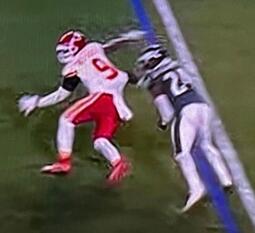 Screenshot Screenshot by Julian Spivey It’s been more than 24 hours since the end of Super Bowl LVII on Sunday when the Kansas City Chiefs defeated the Philadelphia Eagles 38-35 and I’m still seeing and hearing complaints about the controversial holding penalty that some have even gone as far as saying ruined the game. With the score tied 35-35 and 1:54 remaining on the clock in the fourth quarter, the Chiefs had a third-and-eight at the Philadelphia 15-yard line when Chiefs quarterback Patrick Mahomes attempted a pass to wide receiver JuJu Smith-Schuster. The ball fell incomplete but a flag soon hit the turf behind it. It was a potentially game-changing call. If the pass was incomplete the Chiefs would be forced to kick a field goal to take a three-point lead with almost two minutes to play giving the Eagles a chance to tie or win the game. A penalty would give the Chiefs a first down and the ability to run the clock out and win the game with either a field goal or a touchdown. Referee Carl Cheffers keyed his mic and announced: holding on defense No. 24 (Eagles cornerback James Bradberry). The Chiefs got the first down. They ran the clock down to as few seconds as they possibly could. Chiefs kicker Harrison Butker took the field for a 27-yard field goal. He made it. The Eagles couldn’t score in the remaining eight seconds of the game. The Chiefs won the Super Bowl. Fox Sports color analyst and former longtime NFL tight end Greg Olsen was incredulous that it was a bad call. Many sports talking heads, journalists and fans alike on Twitter were angered that such a ticky-tack call was made at such a pivotal time and perhaps altered the game. Following the game, pool reporter Lindsay Jones asked Cheffers about the call. He said there was “no debate” between the officiating crew about it. He said: “The receiver went to the inside, and he was attempting to release to the outside. The defender grabbed the jersey with his right hand and restricted him from releasing to the outside. So, therefore, we called defending holding.” Bradberry, to his credit, admitted the call was right to reporters in the locker room after the game. “It was holding,” he said. “I tugged his jersey. I was hoping they would let it slide.” It seems many watching the game were hoping the officials would let it slide too. But if the player that commits the penalty agrees that it is a penalty why are we having such a problem with the call? “On this stage, I think you let them play, finish this thing out,” Olsen said on the Fox broadcast. A lot of people have been saying that a close game late on a big stage should be officiated differently than others. But if a penalty is a penalty it shouldn’t matter if it’s the first quarter of the first game of the season or the final two minutes of the Super Bowl. Do we really want games officiated based on when and where they take place? That opens up too many possibilities for things to go wrong. Also, this call was a no-win situation for the officials. If they didn’t call defensive holding for Bradberry’s jersey tug of Smith-Schuster and the Chiefs only came out of the drive with a field goal and the Eagles had marched down the field for a game-winning touchdown wouldn’t Chiefs fans be feeling the exact same way today as Eagles fans are? On the zoomed-in photo of the play you clearly see the jersey tug. By the rulebook that’s defensive holding. The officials know that. Bradberry knows that. We at home watching the game know that. The rest doesn’t matter. The officials actually got this call right and are still being hammered by many for it. 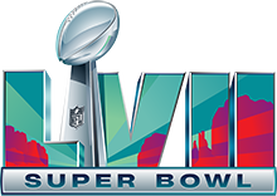 by Eric Fulton & Julian Spivey *This conversation has been edited for grammar and clarity. JS: Super Bowl LVII between the NFC champion Philadelphia Eagles and AFC champion Kansas City Chiefs takes place this Sunday, February 12 at roughly 5:30 (central time) on Fox. Both of these teams are relatively recent Super Bowl champions, but the Eagles are at least a much different team at many key positions than the last time they won in 2018. Let’s break the key positions down. Eric, I know you just finished up a piece on the quarterback matchup of this Super Bowl being a historical one with the first head-to-head matchup of black quarterbacks in Super Bowl history, but which QB do you think has the advantage here? Patrick Mahomes for the Chiefs or Jalen Hurts for the Eagles? EF: The experience obviously goes to Mahomes. This is his third Super Bowl in the last five years. But I am not selling Jalen Hurts short because he has played in championship games before in college. I don't think the biggest single game in football will intimidate Hurts. Both have dealt with injuries going into the game. Mahomes with the ankle and Hurts the shoulder. I think this is the best QB matchup in the Super Bowl in a long time. But based on Super Bowl experience, I am going to give a very slight edge to Mahomes. Both have great defenses so the final score will be lower than people think, but Mahomes will make one more big play than Hurts. JS: I’m still a bit worried about Mahomes’ ankle but it’s seemingly been improving each day. He showed in the AFC Championship game against the Cincinnati Bengals that he could still beat one of the best teams in the league on one leg and with a depleted group of receivers. I don’t mean to take anything away from Jalen Hurts - who like Mahomes is an MVP finalist - but if I had to take one of these QBs for the big game I’d take Mahomes not just over Hurts but over every other quarterback in the league. JS: Who do you think has the best running game of the two teams? EF: The Eagles were one of the better running teams in the NFL this season. Led by Miles Sanders who had 1269 yards rushing this season, averaging nearly five yards per carry. Jalen Hurts was second on the team with 769 yards. Kansas City meanwhile is more of a passing team than a running team. Their leading rusher was Isiah Pacheco who only had 830 yards. Patrick Mahomes was second with just 358 yards. So, I have to lean on the Eagles on their rushing attack. JS: Yeah, not only did the Eagles have one of the best-rushing teams this season, but when it comes to touchdowns they have the most of any team in modern NFL history (which is pretty damn impressive for this being a passing league. Hurts led the team with 13 rushing touchdowns. Sanders had 11. The Eagles averaged more than 50 yards rushing per game this season than the second-place team in the league (Baltimore Ravens). I’d say the Eagles have a fairly significant rushing advantage. JS: What do you think about the receiving corps (including tight ends)? EF: For the receiving corps, you have to think one team has a better set of wide receiver duos and the other team has a better tight end. Philly has A.J. Brown and DeVonta Smith, both guys had a great year. Kansas City has JuJu Smith-Schuster and Marquez Valdes-Scantling, both of whom came from other teams the previous year. Brown and Smith are the better duo. As far as tight end, Travis Kelce is the best tight end in the NFL, and it is not even close. Dallas Goedert is decent in his own way, but he is not Kelce (no one is). So, the Eagles have the better WR, and the Chiefs have the better tight end. This matchup is a push for me. JS: Travis Kelce isn’t just the best tight end in football but I’d say the most dominant receiver period. He and Mahomes together are an almost unstoppable dynamic duo. It’s clear the Eagles have the receiving advantage elsewhere with Brown and Smith. The Chiefs’ defensive backs will have their work cut out for them. JS: All right, let’s do defense as an entire unit. Which team has the advantage here? EF: Both teams have great individual players, like Chris Jones, Frank Clark, and Juan Thornhill for the Chiefs. On the Eagles side, you have Fletcher Cox, Haason Reddick, Brandon Graham, C.J. Gardner-Johnson, and Darius Slay. To me, Philly's defense can be very dominant and would apply more pressure to Mahomes than Kansas City would to Hurts. For Philly to stay in the game and win it at the end, their defense will need to force a lot of pressure on Mahomes and get him to turn the ball over. We have seen times when Mahomes can throw that head-scratching interception. As far as the unit goes, I am giving the advantage to the Eagles. JS: Points allowed per game is a stat that shows you how good a defense is, and the Eagles were tied with the Ravens for allowing the third-fewest points per game to opposing offensives this season at 18.8. The Chiefs were only in the middle of the league with 21.5 points per game allowed. I know that’s only a difference of about a field goal, but in a game of inches, it could mean a lot. The Eagles also gave up the second-fewest yards per game of any team this season with an average of 301.5. The Chiefs give up 328.2 yards per game on average. I agree Philly has the advantage. JS: How about special teams - primarily the kicking games of these teams? EF: Both Harrison Butker and Jake Elliot are two of the better kickers in the NFL. Butker is 18 of 24 in field goals (75 percent) while Elliott is 20 of 23 (87 percent) for the season. I think Elliott has the better numbers and probably will have the better opportunity to help his team win. On the kicking (field goal) advantage, I am giving this one to the Eagles. Punting-wise, Arryn Siposs (Eagles) averages nearly 46 yards per punt. Tommy Townsend (Chiefs) averages nearly 50 yards per punt. I will give the punting edge to Kansas City. JS: Does Andy Reid have the advantage when it comes to coaching simply because he’s been there/done that? EF: I like Nick Sirianni. I think he is a great coach and as long as the Eagles make smart decisions to equip their team, he does have a chance to be in this position. Obviously, Reid has the coaching advantage. Another Super Bowl win for him puts him easily in the top five all-time without question, maybe the top three. JS: Who’s going to win Super Bowl LVII? EF: Overall, this should be a really good game. The Eagles have some advantages that will keep them in the game, but the Chiefs will pull away late and Kansas City wins its Second Super Bowl in the last four years 34-27. JS: I’m pretty torn on a prediction here, which hopefully means it’ll be a very competitive and close game. I think the Chiefs have the best player on the field in Mahomes. I think the Chiefs have the biggest weapon on offense in Kelce. But I think the Eagles have the advantages elsewhere – defense, run game, and other receivers not named Kelce. I’m going to predict Eagles win Super Bowl LVII. 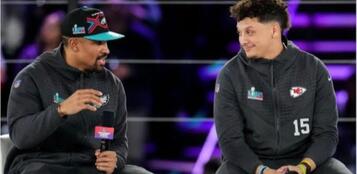 Screenshot Screenshot by Eric Fulton The Super Bowl LVII matchup between the Kansas City Chiefs and Philadelphia Eagles has many storylines leading up to the most anticipated Super Bowl perhaps ever. You have Jason and Travis Kelce facing each other (although both brothers play offense) – the first time brothers have faced off in Super Bowl history. There is Andy Reid, the winningest coach in Eagles history, looking to win a second Super Bowl title against his former team. The Chiefs and the Eagles had the best records in the NFL and were the number-one seed in their respective conferences. But what should be the biggest headline in this Super Bowl matchup is the starting quarterbacks for their respective teams. Patrick Mahomes and Jalen Hurts are two of the eight black starting quarterbacks in the NFL. When they both step on the field for Super Bowl LVII, it will be the first time two black quarterbacks started against each other in a Super Bowl. It is a huge deal because Mahomes and Hurts were the two best quarterbacks in the NFL this season, and both quarterbacks are finalists for the NFL MVP award. For Mahomes, who is making his third appearance in the Super Bowl, a Super Bowl win would make it his second in just five years and would put him among the greatest to ever play in the NFL in a short amount of time. Hurts, who is only in his second full season as Philadelphia’s quarterback, could already become one of the greatest quarterbacks in Eagles franchise history. Mahomes and Hurts both started their football journeys in the football-rich state of Texas. Mahomes grew up in a small Texas town called Whitehouse while Hurts grew up in the Houston area. In college, Hurts was building a legacy by winning national championships at Alabama. Although Hurts was successful as the Crimson Tide’s signal caller, he would eventually lose his job to Tua Tagovailoa and transfer to Oklahoma for his final year of college football. Mahomes went to Texas Tech in Lubbock and became the greatest quarterback in that school’s history. In three seasons of college football, Mahomes threw for 11,252 yards and 93 touchdowns. Though he did not win the National Championship in college like Hurts, Mahomes’ talent was not missed by scouts as he was drafted 10th overall by Kansas City in the 2017 NFL draft. Hurts spent four years in college football playing at two legendary powerhouses, throwing for 9.477 yards and 80 touchdowns. Hurts had a great college career but being benched and transferring probably hurt his draft stock. The Eagles drafted Hurts 53rd overall (2nd round) in the 2020 NFL draft. Even though Mahomes had a three-year head start over Hurts in his career, both quarterbacks would not start for their perspective teams right away. In 2017, Mahomes started one game for the Chiefs while Alex Smith became the main starter for most of the season. When Kansas City moved on from Smith, they named Mahomes the starting quarterback and never turned back. Since 2018, Mahomes has won 63 games, while throwing for nearly 24,000 yards and 192 touchdowns. He won the regular season MVP in his first full season in 2018, led the Chiefs to hosting five straight AFC championship games, playing in the Super Bowl twice, and winning MVP in Super Bowl LIV. Mahomes has also set 13 different NFL records in only five full seasons as a starting quarterback. Hurts’ start to his NFL career started a little rocky. He made his NFL debut in Week 13 of the 2020 season relieving an ineffective Carson Wentz. In that game against the Green Bay Packers, Hurts threw for 109 yards and a touchdown in an Eagles loss. The next week, Hurts would get his first career start against the New Orleans Saints and would lead the Eagles to a 24-21 win. Hurts would get benched in the Week 17 finale which eventually led to the firing of head coach Doug Pederson. After hiring new head coach Nick Sirianni, Hurts would become the full-time starter in 2021. He went 8-7 as a starter in 2021, but the Eagles made the playoffs losing to the Tampa Bay Buccaneers in the first round. For the season, Hurts threw for 3,144 yards and 16 touchdowns, while rushing for 784 yards on 139 attempts. He led all quarterbacks that season in rushing yards and rushing attempts. Hurts would have a breakout season in 2022. He tied Randall Cunningham for the most touchdown passes in a season in Eagles history with 35. He threw for 3,701 yards with a quarterback rating of 105.1. He would be selected to his first Pro Bowl and was named second-team All-Pro for his great play in 2022. The path of a black quarterback playing in the NFL has never been easy. When the first Super Bowl was played in 1966, there were no active black quarterbacks. In the late 1970s and early 1980s, there was not a single NFL game that featured two starting black quarterbacks, and by 2000, there were no black quarterbacks facing each other in a playoff game. When you look at the history of black quarterbacks starting in the Super Bowl, there is not a lot of history. Black quarterbacks starting in the Super Bowl have record of 3-3 all-time. A black quarterback's biggest and most important win was from Doug Williams in Super Bowl XXII. Williams, who was the first black quarterback drafted in the first round of the NFL draft in 1978, threw for four touchdowns in one quarter (still a Super Bowl record) in Washington’s 42-10 victory over Denver. Since Williams’ special night in 1988, only two other black starting quarterbacks have won the Super Bowl (Russell Wilson and Mahomes). Having Mahomes and Hurts start Super Bowl LVII is already a major win for the NFL, sports fans, black quarterbacks, and the black community as a whole. I am very excited to see what talents both Patrick and Jalen will display for football’s biggest prize. |
Archives
July 2024
|
